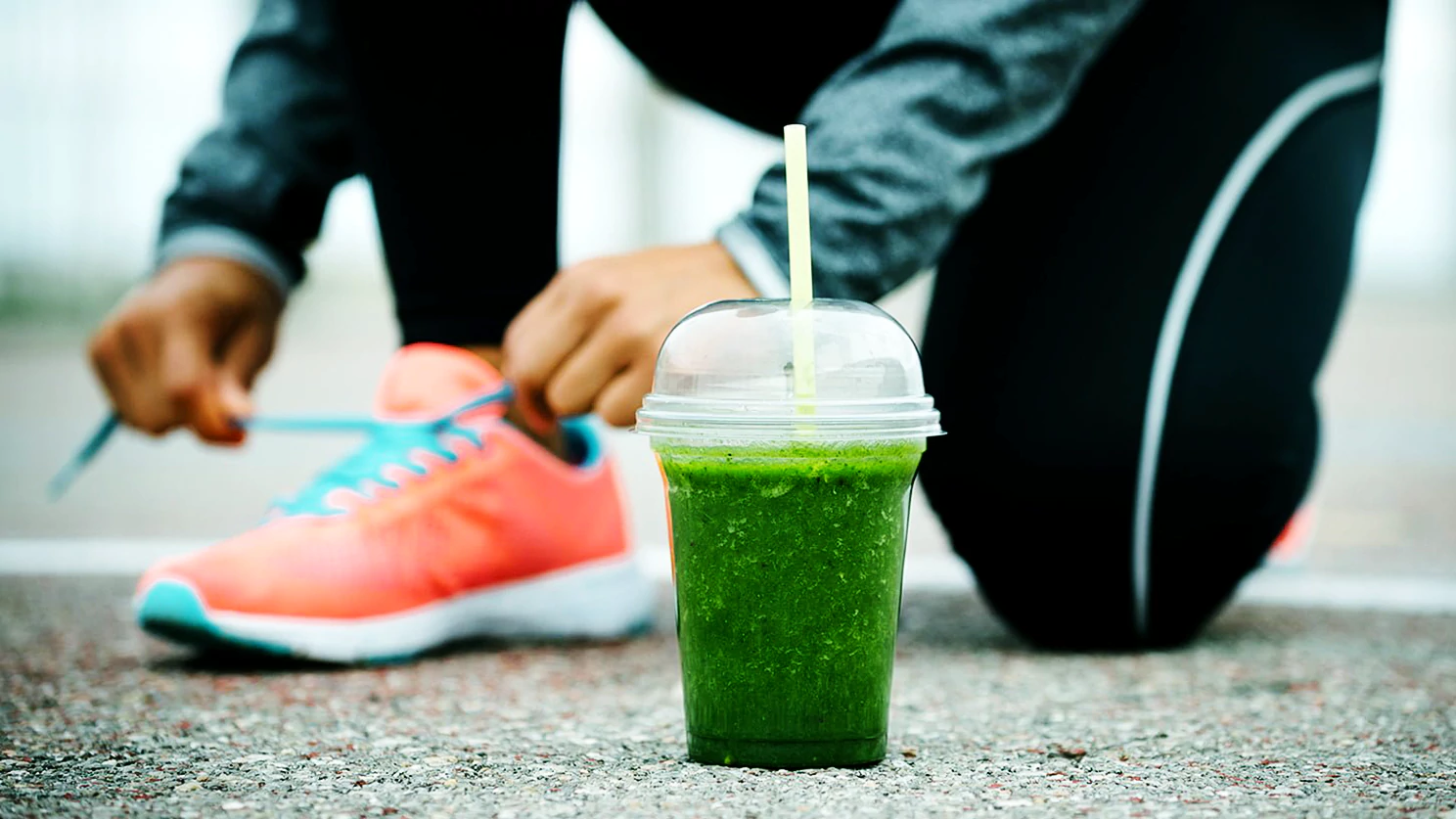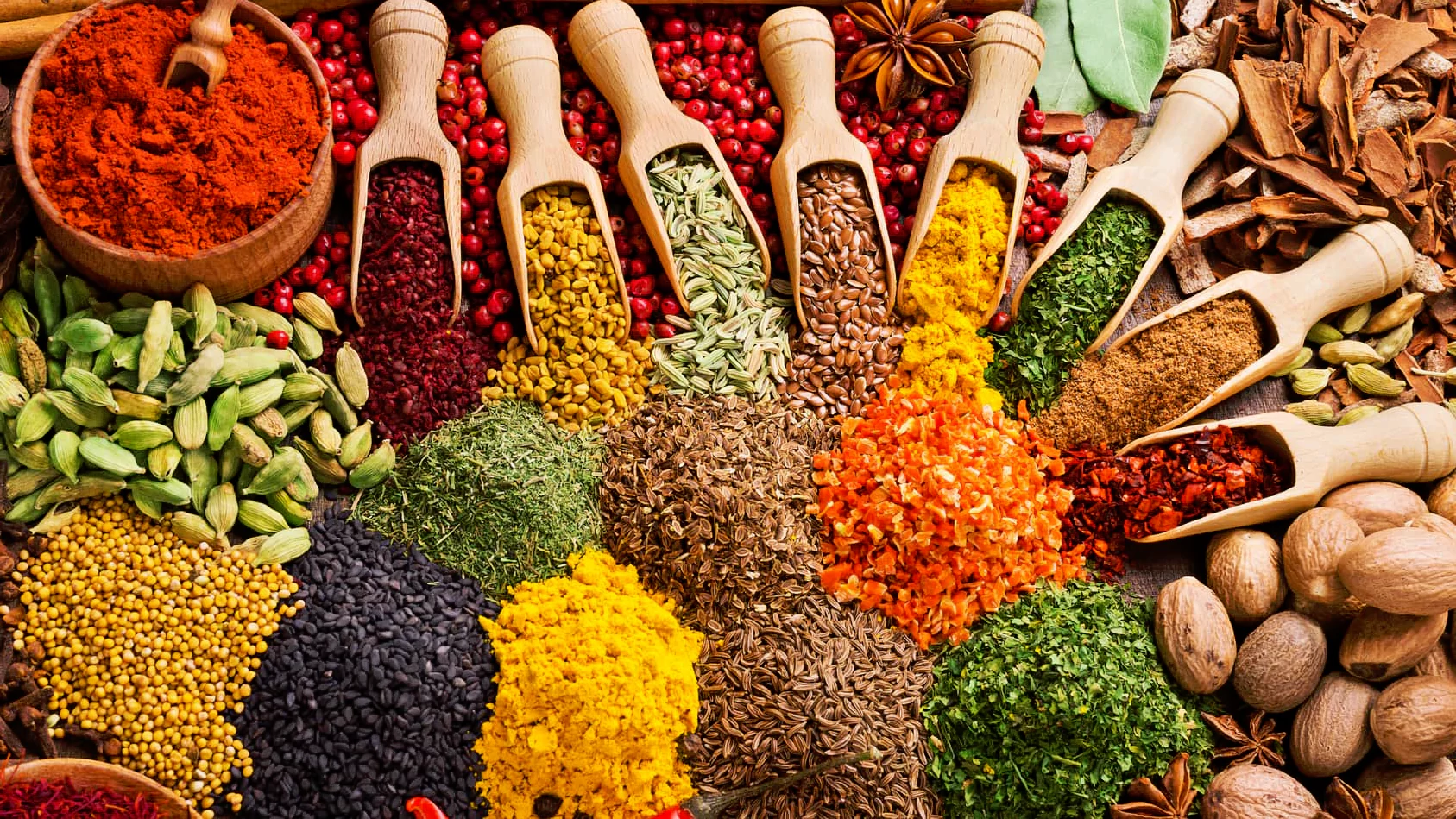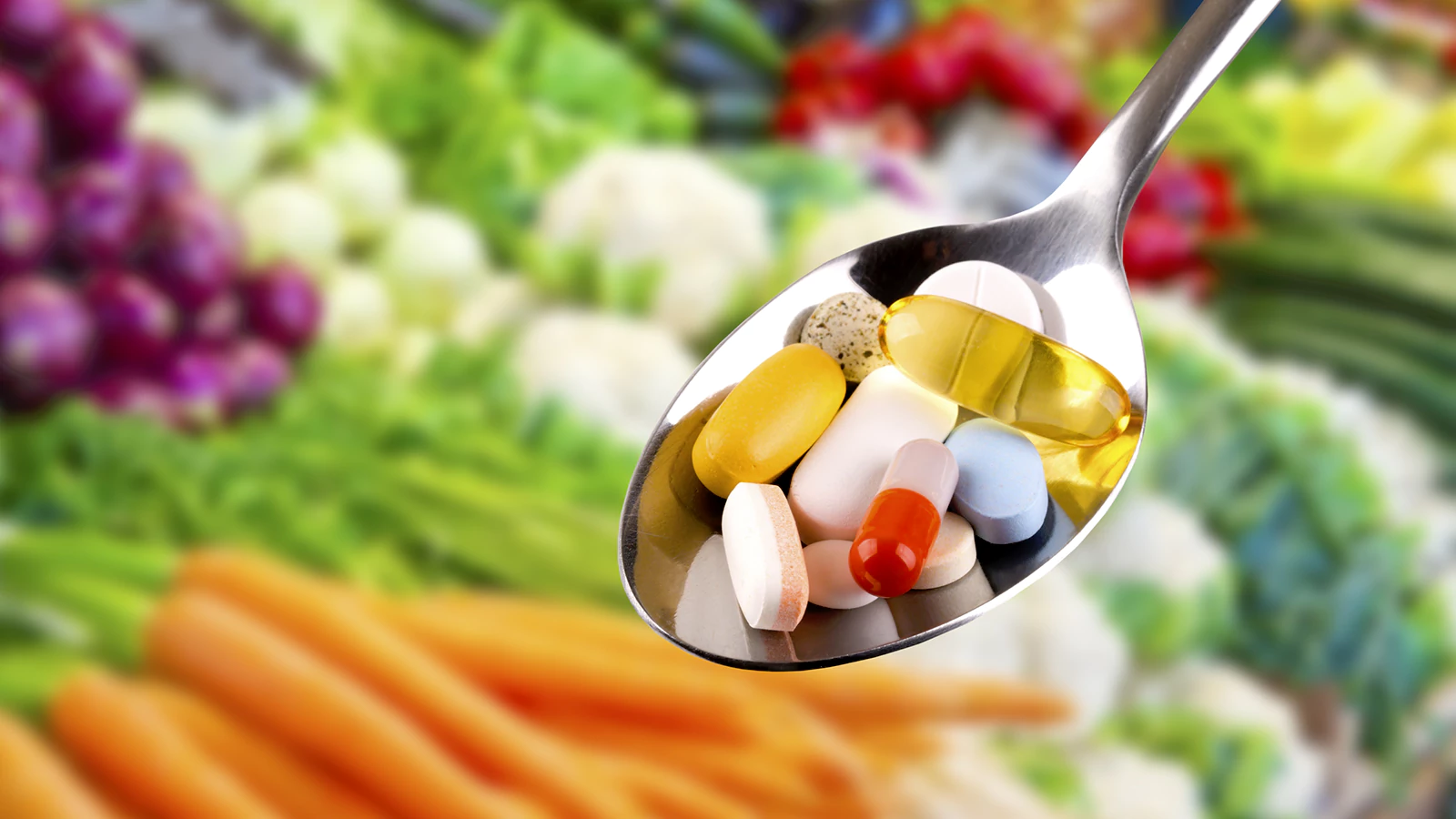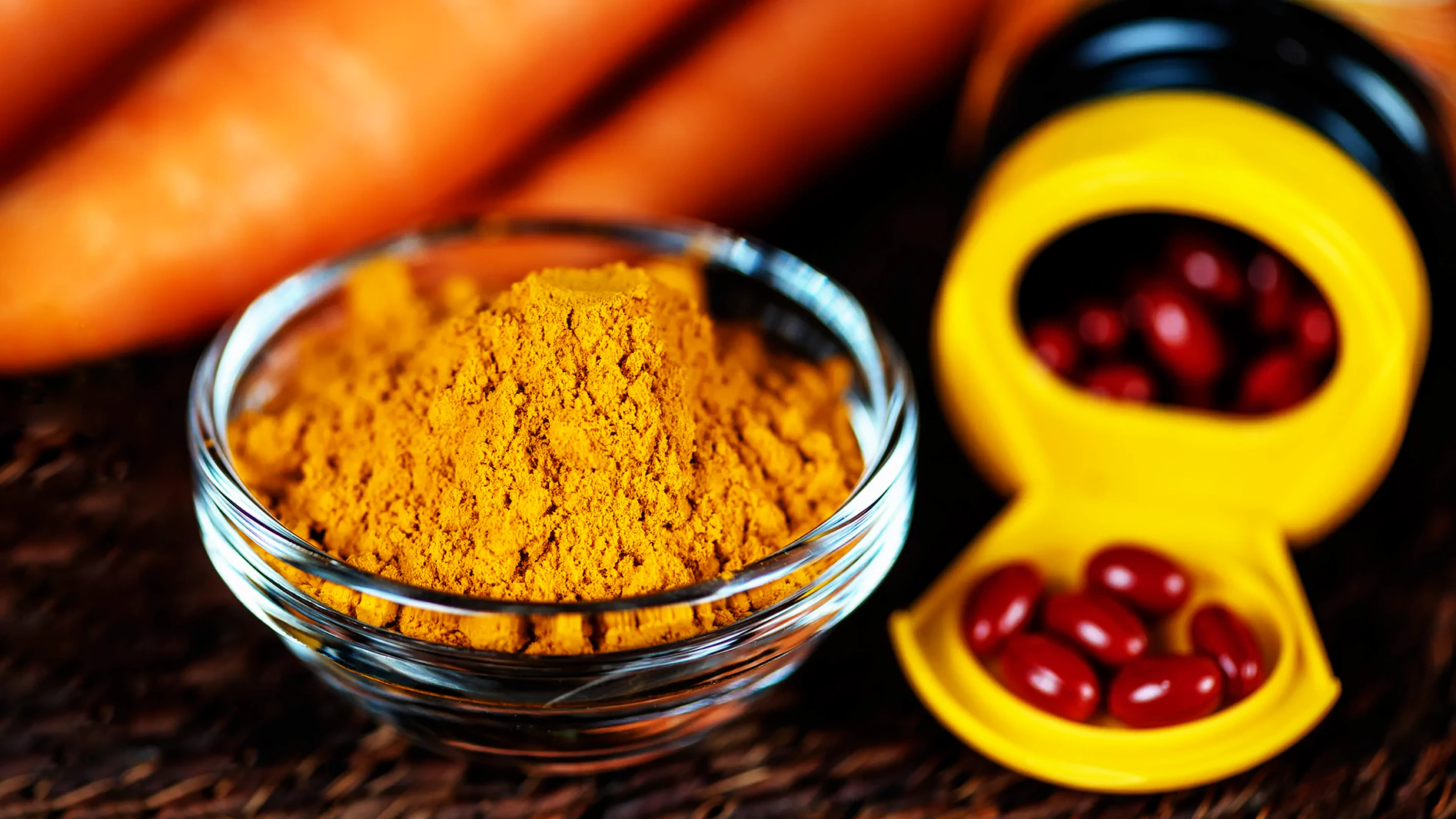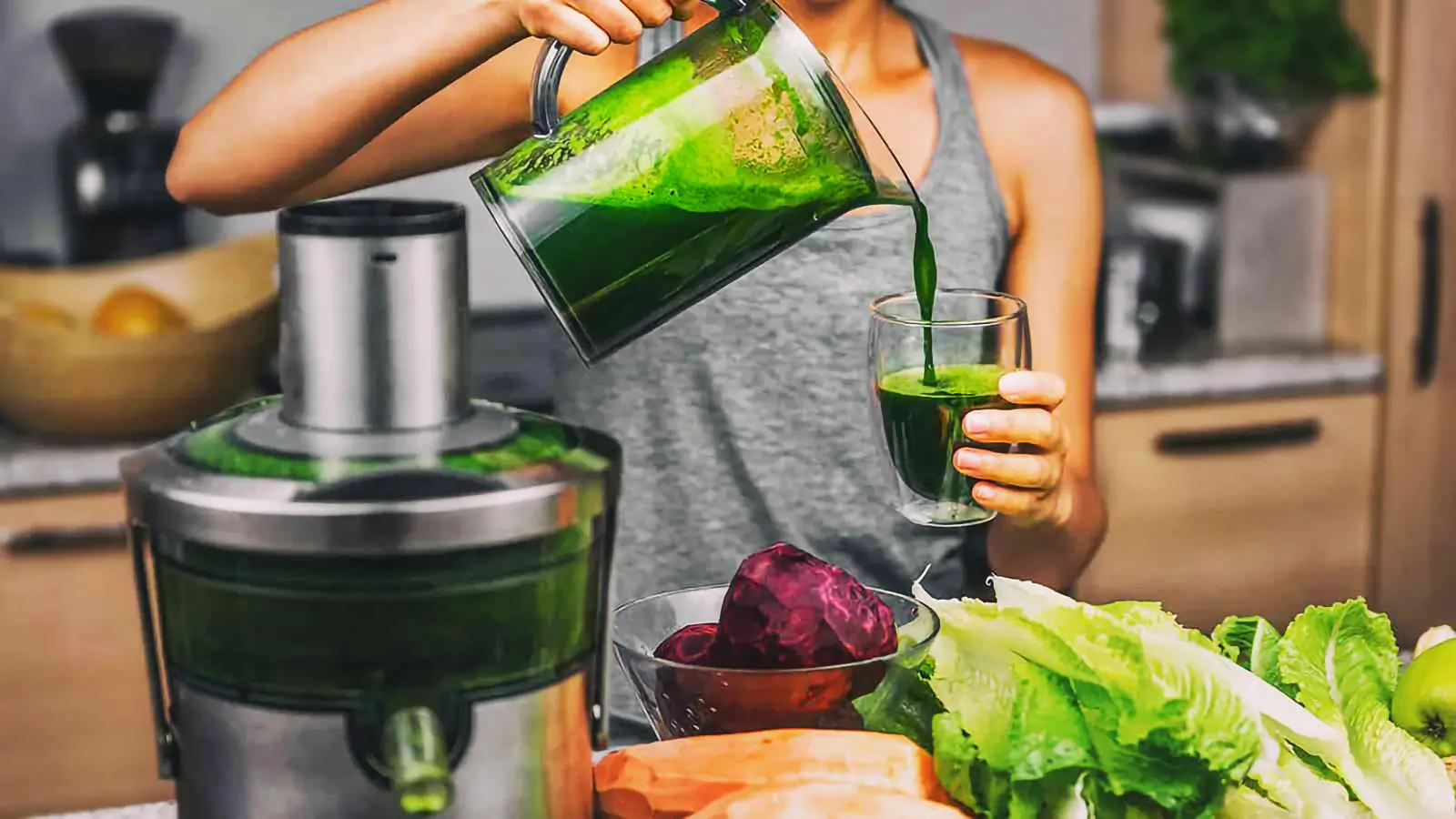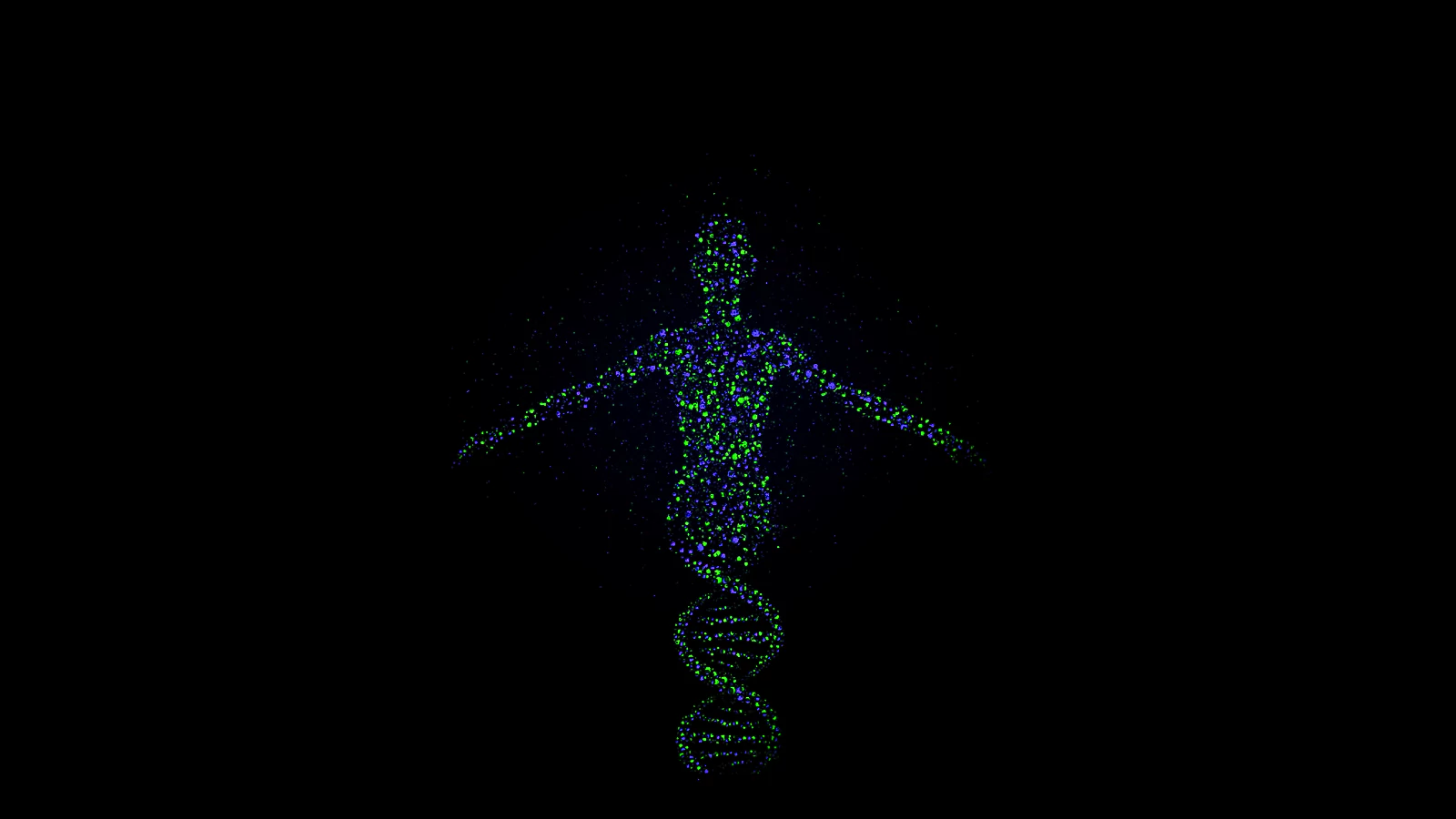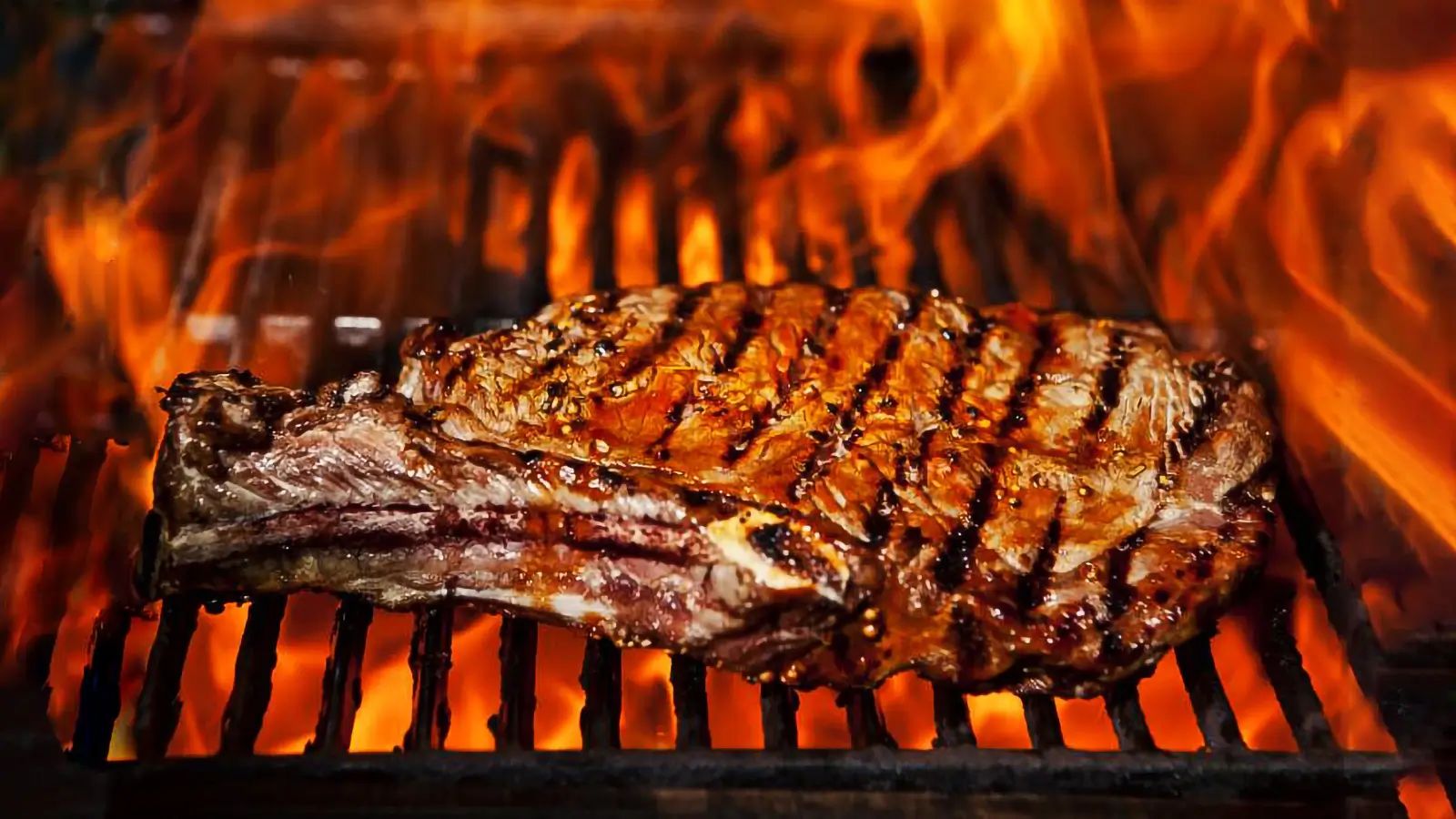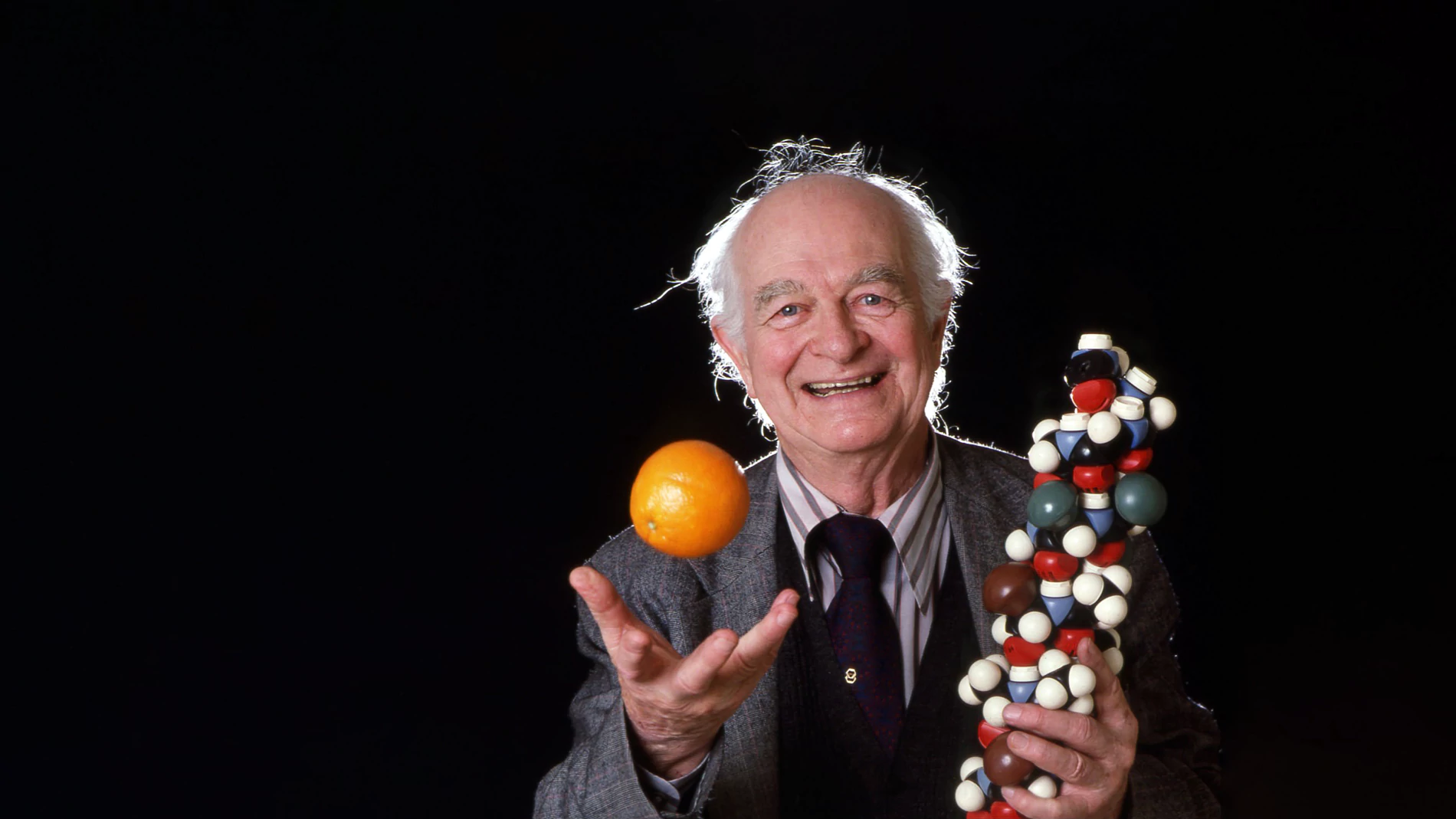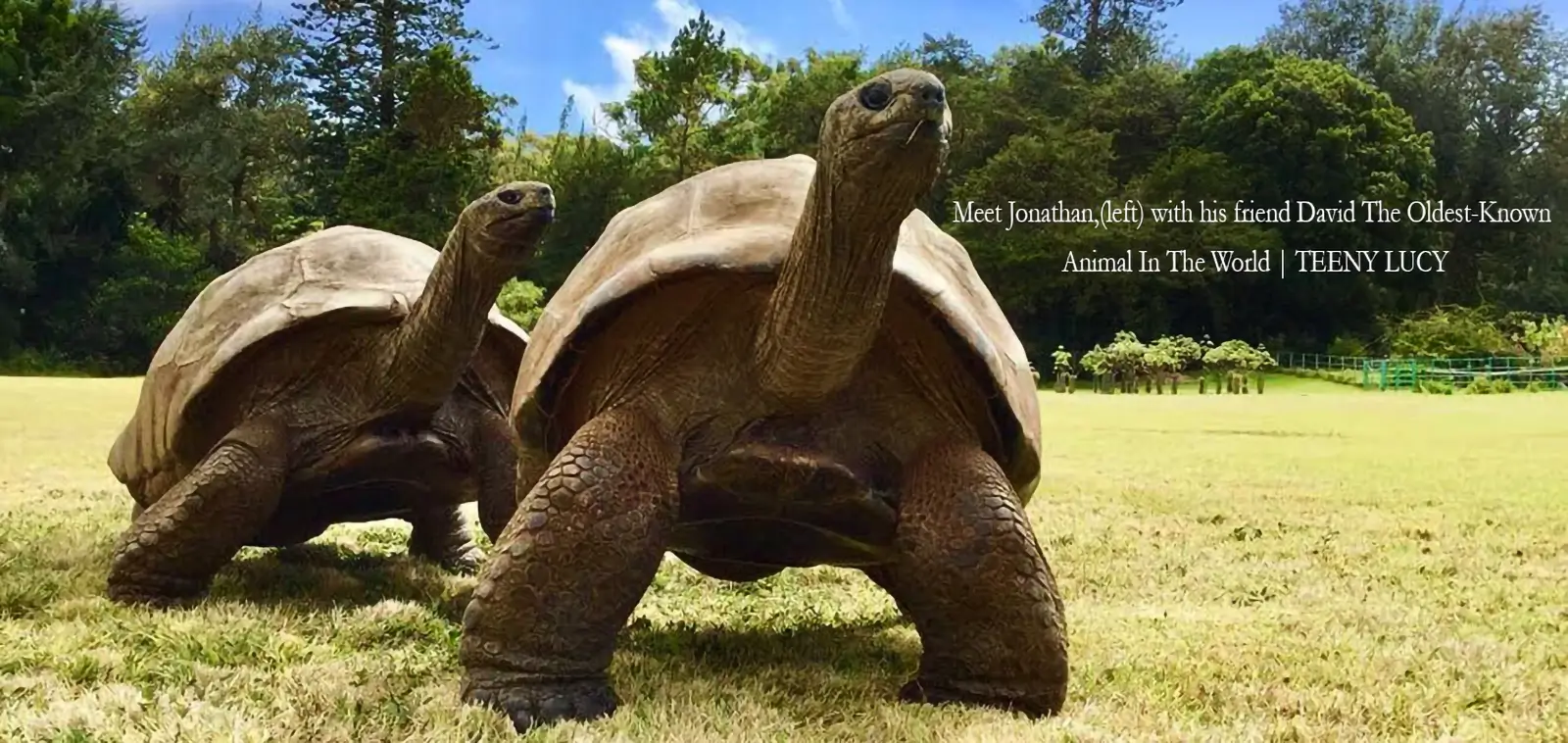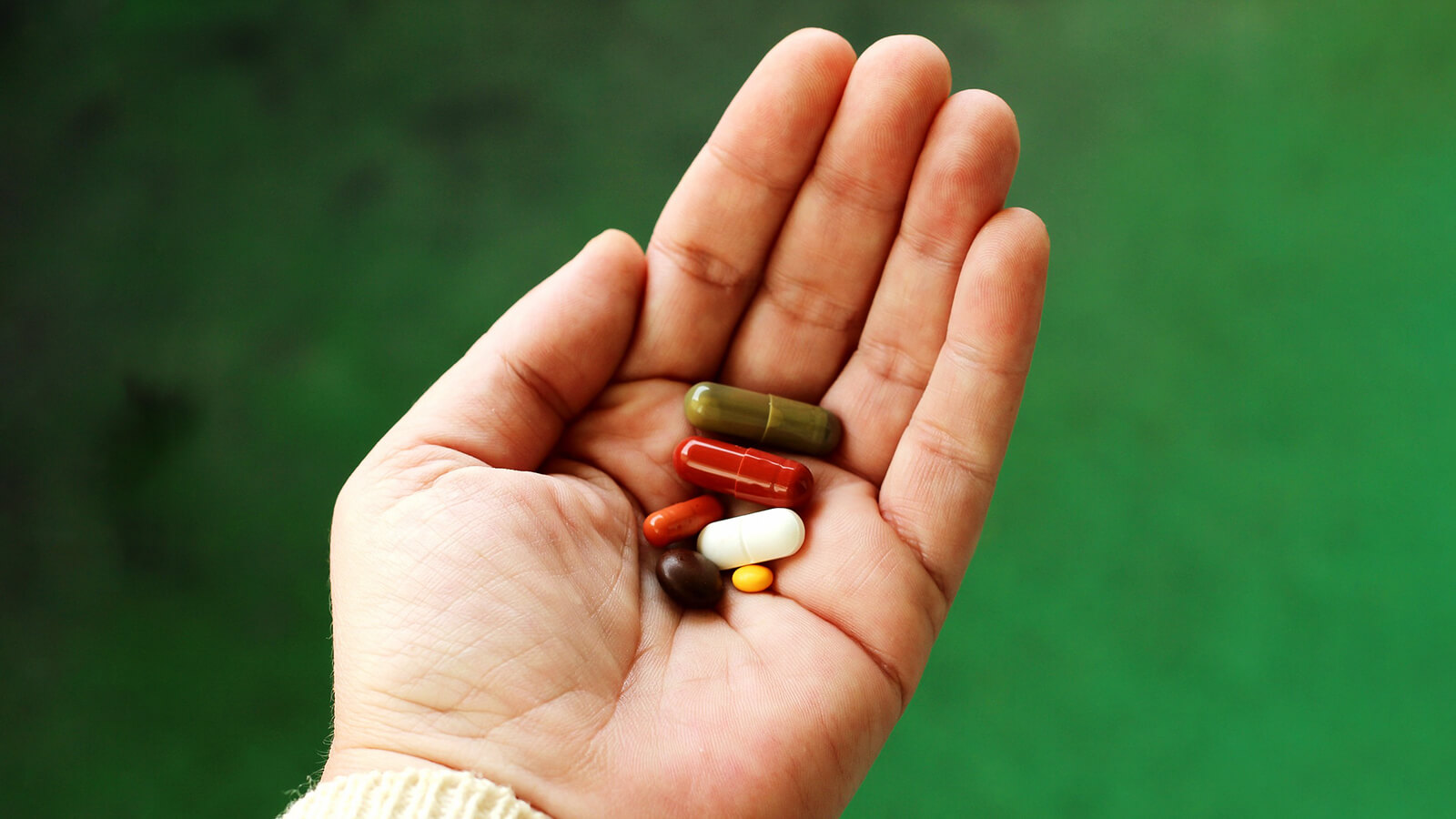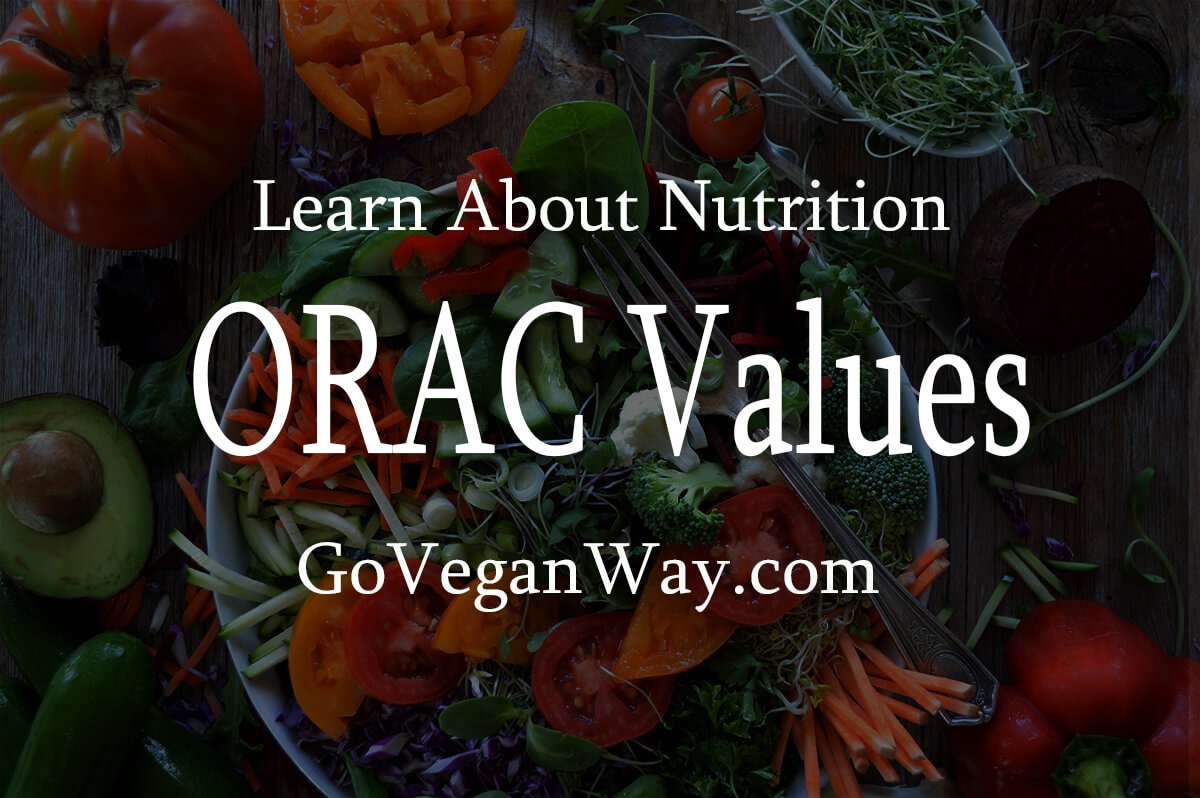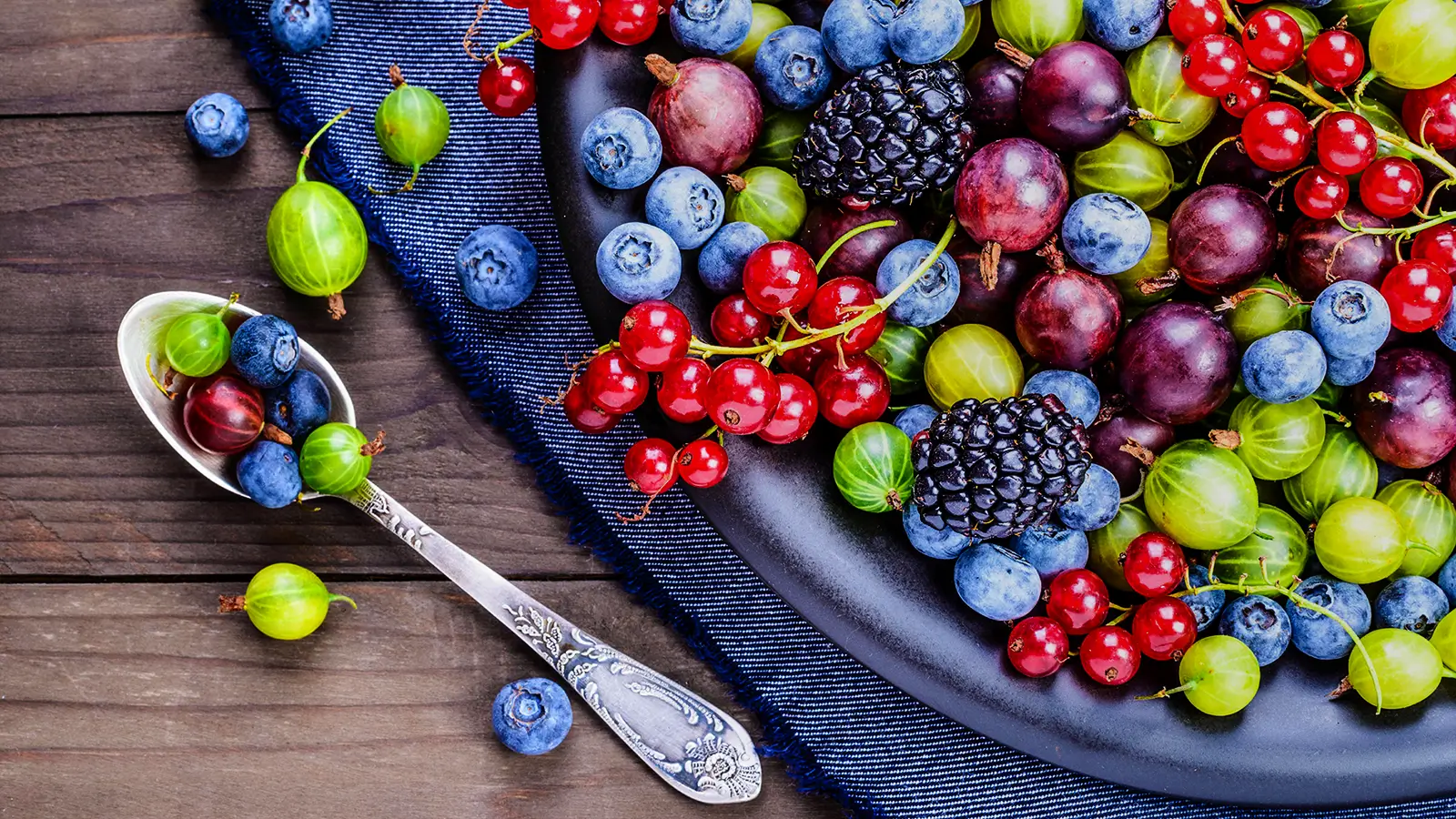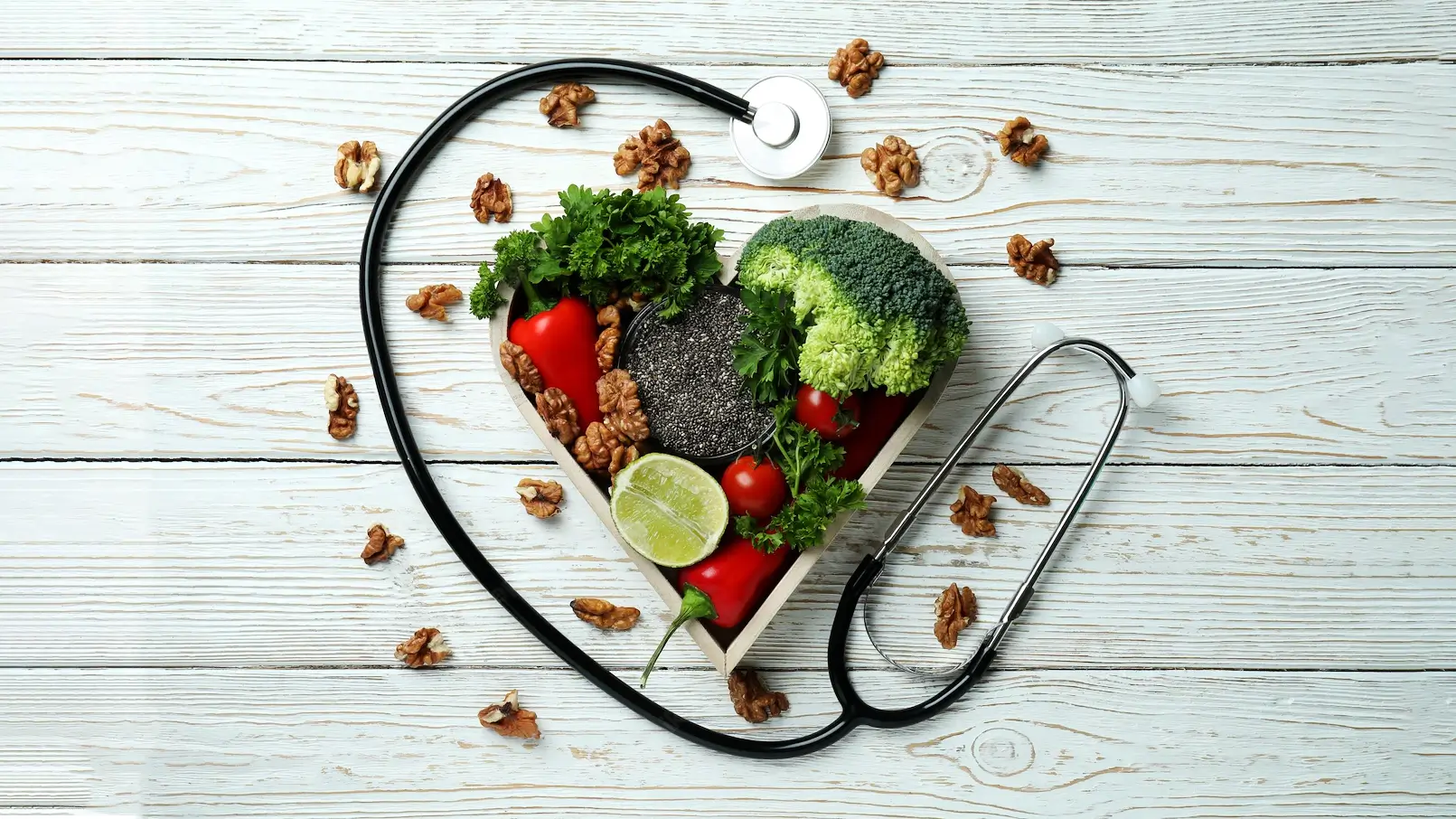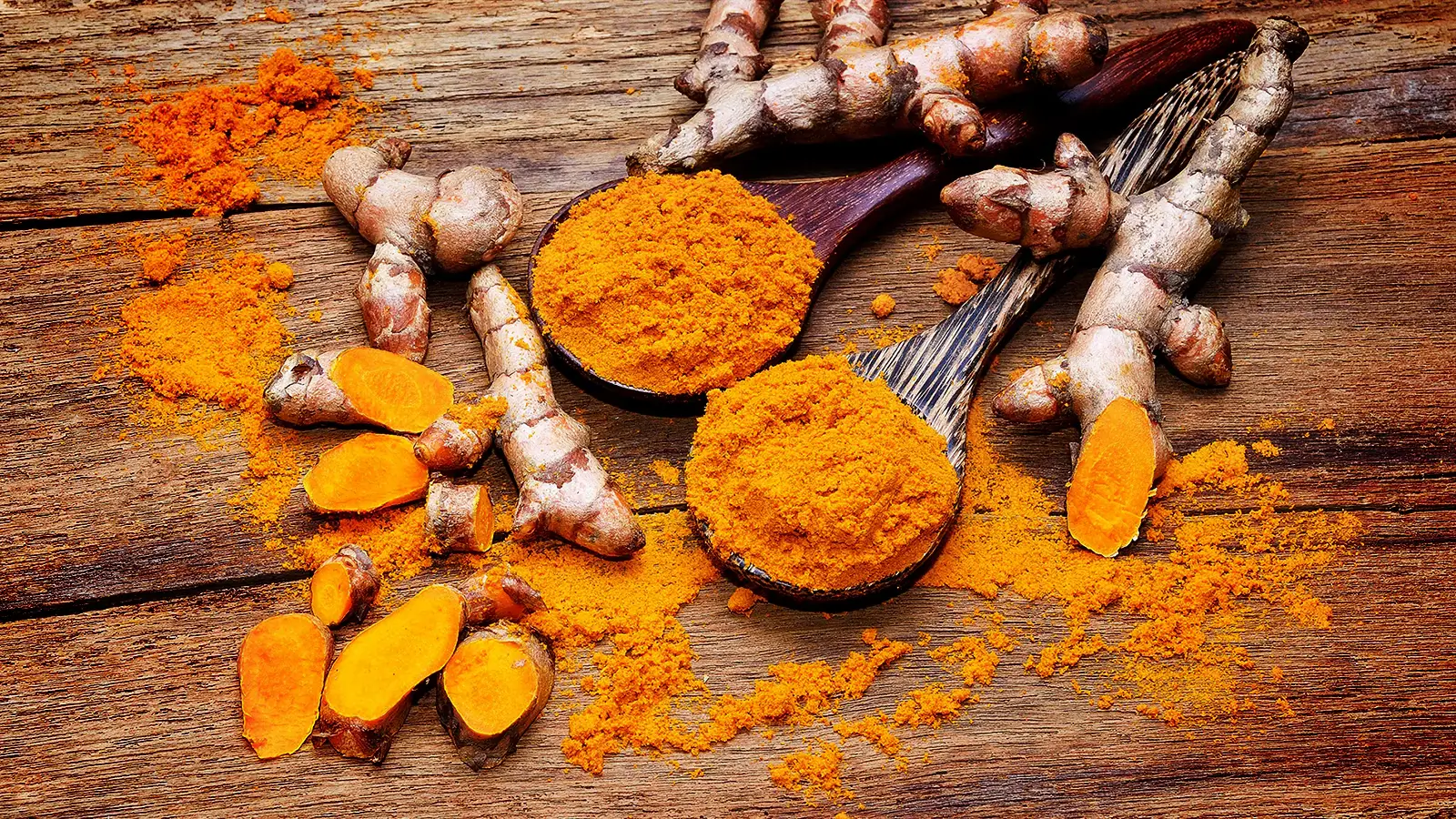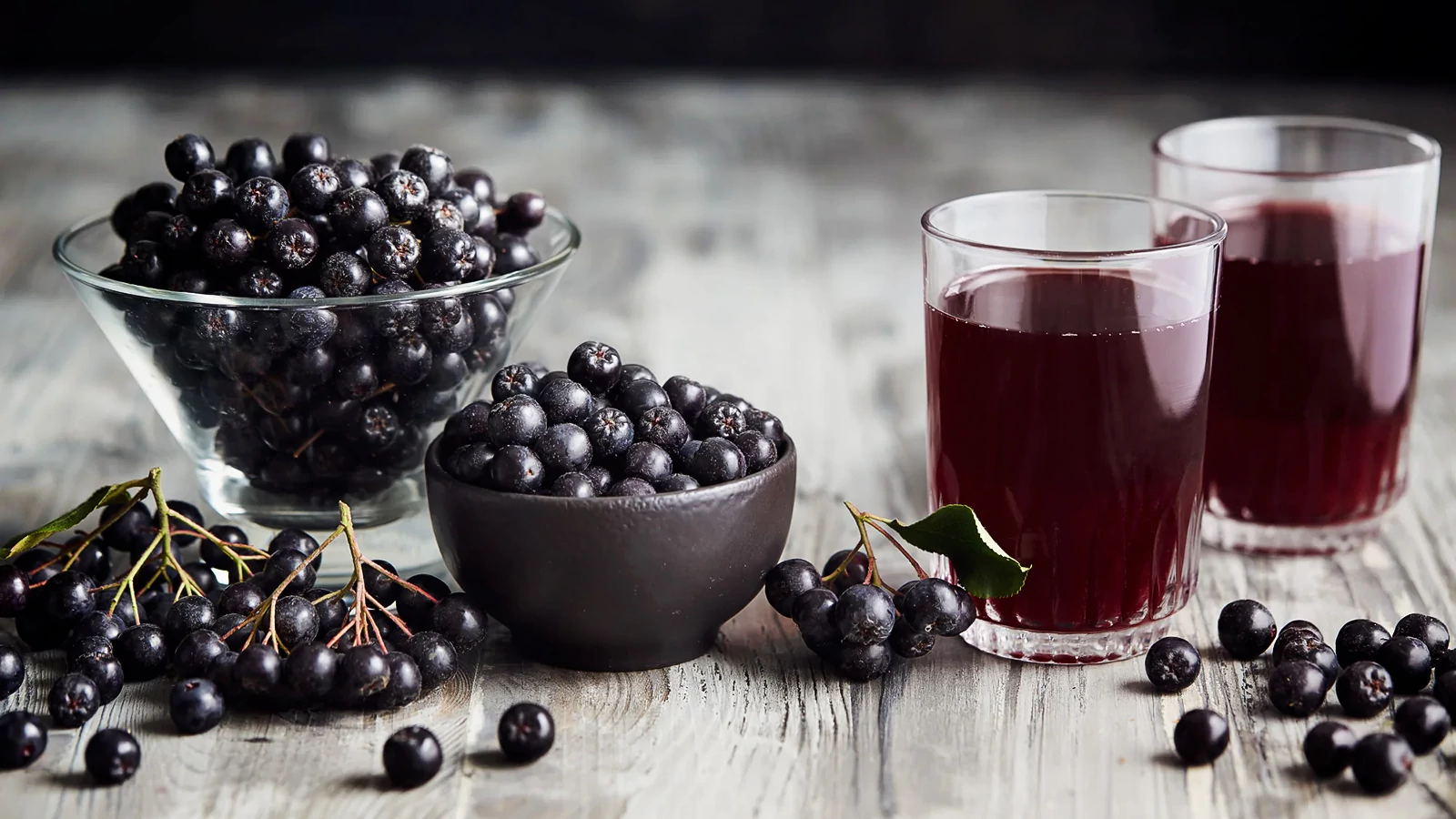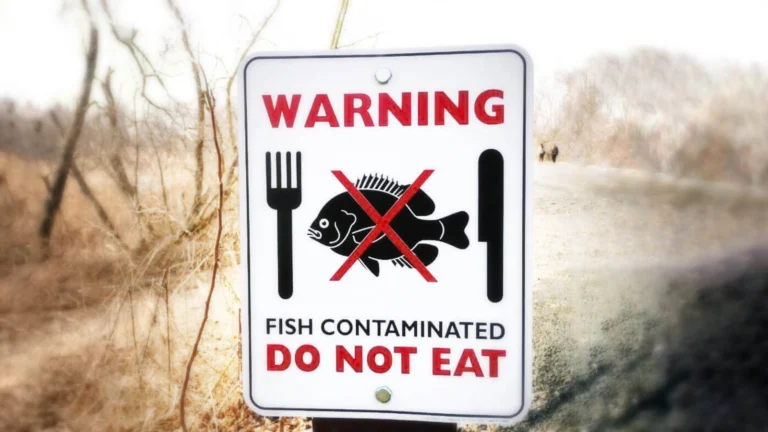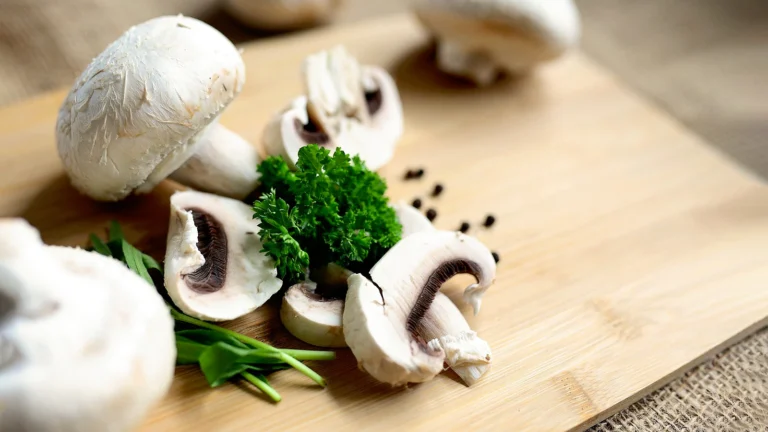Antioxidantien: Die Grundlagen Verstehen
Tierische Produkte enthalten keine sekundären Pflanzenstoffe oder Antioxidantien. Pflanzliche Lebensmittel enthalten im Durchschnitt mehr als 60-mal so viele Antioxidantien wie tierische Lebensmittel.
Milos Pokimica
Geschrieben von: Milos Pokimica
Medizinisch Begutachtet Von: Dr. Xiùying Wáng, M.D.
Updated Dezember 21, 2025Die zentralen Thesen:
- In tierischen Produkten sind keine sekundären Pflanzenstoffe und Antioxidantien in ausreichender Menge enthalten.
- Neben den Vitaminen sind die natürlichen Pigmente die wichtigsten Phytochemikalien für uns. Diese Pigmente werden von den Pflanzen als Abwehrmechanismus gegen Schäden durch freien Sauerstoff (Antioxidantien) oder als Schutz vor UV-Strahlung gebildet.
- Antioxidantien sind wichtig, weil sie Entzündungen und Schäden an der DNA verhindern und auch die Alterungsrate beeinflussen.
- Es gibt kein Wundermittel oder einen Ersatz für eine schlechte Ernährung, es gibt nur stärkere ergänzende antioxidative Nahrungsquellen wie Amla, Kurkuma, Kakao, Hibiskus, Astaxanthin oder Beeren...
- Nehmen Sie niemals zusätzliche Antioxidantien ein, die sich im Körper in Pro-Oxidantien verwandeln, oder die enzymatische Wege benötigen, um aus dem Körper entfernt zu werden, da sie den natürlichen Abwehrmechanismus des Körpers überwinden könnten.
Antioxidantien
Phytochemikalien (alle Chemikalien, die Pflanzen produzieren) sind lebenswichtig. Die wichtigsten Chemikalien werden als Vitamine (Vita bedeutet Leben) bezeichnet und sind für unseren Organismus lebenswichtig. Wir haben uns 50 Millionen Jahre lang weiterentwickelt und ernähren uns vollwertig und pflanzlich, und in der Natur ist Essen ein Pauschalangebot. Um an die Kalorien in Form von Makronährstoffen wie Zucker und Fett zu gelangen, mussten wir auch alle anderen sekundären Pflanzenstoffe der Pflanze zu uns nehmen. Mit der Zeit hat sich unser Körper angepasst. Einige dieser sekundären Pflanzenstoffe sind so wichtig geworden, dass wir, wenn wir sie nicht konsumieren, auf die gleiche Weise sterben, wie wenn wir keine Kalorien zu uns nehmen würden. Es gibt nur zwei Vitamine, die Pflanzen nicht produzieren Vitamin B12 Und Vitamin-D.
Neben Vitaminen sind sie die wichtigsten sekundären Pflanzenstoffe für uns sind natürliche Pigmente.
Diese Pigmente werden von den Pflanzen als Abwehrmechanismus gegen Schäden durch freien Sauerstoff (Antioxidantien) oder als Abwehr gegen UV-Strahlung erzeugt.
In der Geschichte der modernen Ernährungswissenschaft ist das Verständnis von Antioxidantien eines der Hauptthemen. In vielen Fällen haben aus Lebensmitteln gewonnene Antioxidantien aufgrund ihrer Fähigkeit, freie Radikale abzufangen, vor Strahlung zu schützen, vor DNA-Schäden zu schützen, Umweltgifte zu chelatisieren, die Lipidperoxidation zu hemmen, Übergangsmetallionen zu chelatisieren, sowie aufgrund ihres zusätzlichen Nährwerts große Aufmerksamkeit erhalten . In der traditionellen Medizin werden sie sogar als Gegenmittel gegen Schlangengift eingesetzt.
Das wichtigste natürliche Pigment für uns ist ein orangefarbenes Pigment aus Karotten und anderen Gemüsesorten, das so genannte Beta-Carotin. Unser Körper wandelt Beta-Carotin in Vitamin A um. Wir gehören zu den Spezies auf diesem Planeten, die auf pflanzliche Ernährung und sekundäre Pflanzenstoffe angewiesen sind, und wir werden sterben, wenn wir sie nicht essen. Wenn wir kein Fleisch essen, werden wir Vitamin B12-Mangel in der Neuzeit, weil wir angefangen haben, uns die Hände zu waschen und sanitäre Anlagen zu benutzen, aber wenn wir keine Pflanzen essen, werden wir an Skorbut sterben. Die meisten anderen Tiere und alle Allesfresser und Fleischfresser stellen ihr eigenes Vitamin C her. Wenn wir uns die fossilen Aufzeichnungen ansehen, hatten die Menschen in der Steinzeit mit einem gewissen Fleischkonsum immer noch etwa 130 Gramm Ballaststoffe pro Tag und etwa 10 Mal mehr Vitamin C.
Es ist auch logisch, den Schluss zu ziehen, dass, wenn wir auf antioxidative Vitamine angewiesen sind, zwei davon für uns Vitamine sind: Vitamin C und Vitamin E sind wir in gewissem Maße auch auf alle anderen Antioxidantien angewiesen.
Es handelt sich zwar nicht um Vitamine an sich, aber dennoch verfügen wir nicht über einen angemessenen internen Schutzmechanismus gegen Schäden durch freie Radikale. Wir müssen sie also auch zu uns nehmen. Das haben wir während unserer gesamten Evolution getan. Alle anderen Antioxidantien und Pigmente, die keine Vitamine sind, sind dennoch Antioxidantien, und wir brauchen sie in geringerem Maße.
Ohne Sauerstoff gibt es kein Leben. Es wird von Mitochondrien über die Elektronentransportkette verwendet, um bestimmte Moleküle zu oxidieren und so Energie in Form von ATP zu erzeugen (Adenosintriphosphat). Mitochondrien war ein eigenständiger Organismus in Zeiten, als es auf diesem Planeten noch keine vielzelligen Organismen gab. Nur noch ein Bakterium.
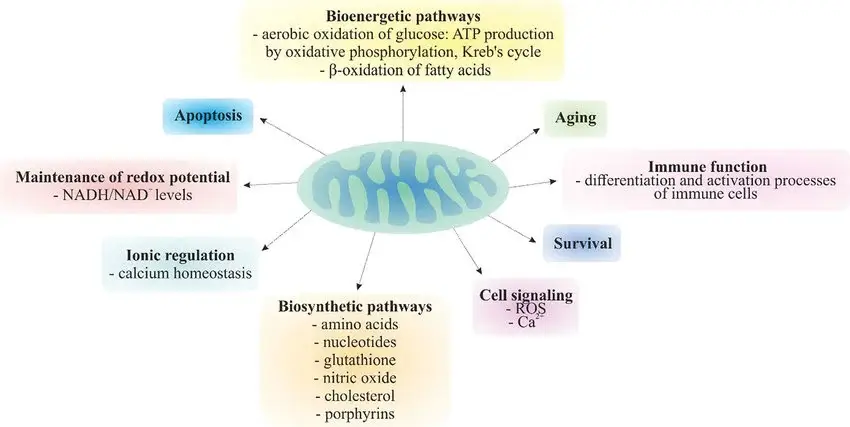
Oxidativen Stress
Mehrzellige Organismen entwickelten sich aus einem einzigen Zellorganismus durch Symbiose mit Mitochondrien. Es verfügt über eine von unserer eigenen DNA getrennte DNA, die wir von unseren Müttern erben. Wir geben ihnen Nährstoffe, Mitochondrien geben uns Energie. Während dieses Prozesses wird Sauerstoff zu Wasser reduziert, wodurch mehrere von Sauerstoff abgeleitete freie Radikale entstehen reaktive Sauerstoffspezies (ROS), die bei verschiedenen Krankheiten eine wichtige Rolle spielen.
Oxidativer Stress entsteht, wenn ein Sauerstoffmolekül in einzelne Atome mit ungepaarten Elektronen zerfällt. Diese aggressiven Moleküle werden freie Radikale genannt. Sie sind so aggressiv, dass sie das nächste stabile Molekül angreifen und versuchen, ihm dessen Elektronenteilchen zu stehlen. Wenn das angegriffene Teilchen kein Elektron mehr hat, wird es selbst zum freien Radikal. Der Prozess wird eine Kettenreaktion auslösen. Sobald der Prozess gestartet wird, ist das Endergebnis die Zerstörung einer lebenden Zelle.
Freie Radikale entstehen im Rahmen des normalen Stoffwechsels.
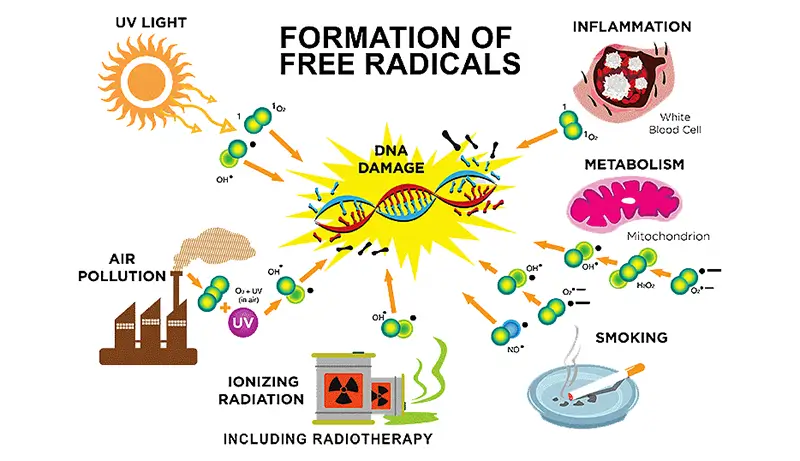
Vier verschiedene Mechanismen produzieren endogene (Ihr Körper erzeugt sie) freie Radikale. Die Produktion freier Radikale kann nicht vollständig gestoppt werden. Es ist für mich überraschend amüsant, dass Sauerstoff, ein lebensnotwendiges Element, auch für unseren Tod verantwortlich ist.
Es ist nicht plausibel, die Anzahl der freien Radikale im Körper direkt zu messen. Je mehr Kraftstoff wir verbrennen, desto schneller verbrennen wir.
Normalerweise werden freie Sauerstoffradikale durch natürliche Antioxidantien wie Vitamin E oder Enzyme wie z. B. neutralisiert Hyperventilieren. Allerdings werden ROS zu einem Problem, wenn entweder ihre Entfernung abnimmt oder sie überproduziert werden, was zu oxidativem Stress führt.
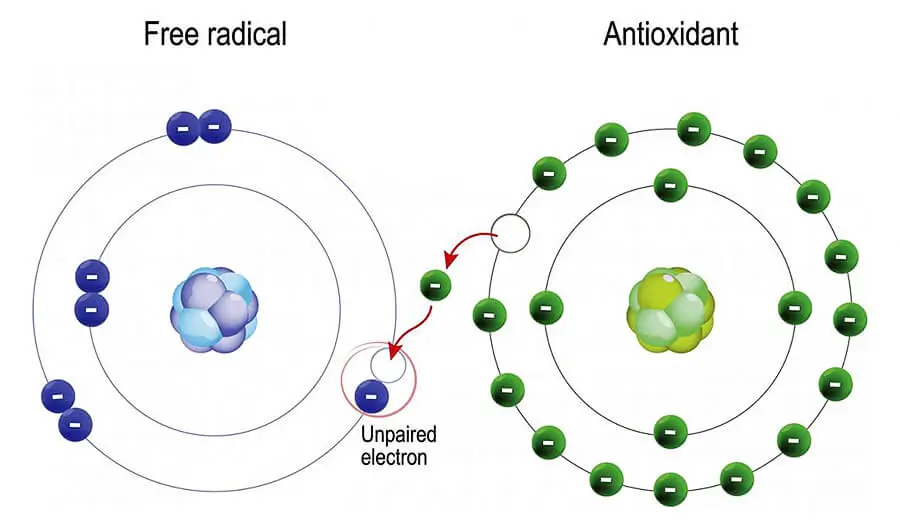
Dieser Stress und die daraus resultierenden Schäden sind mit vielen Krankheiten verbunden.
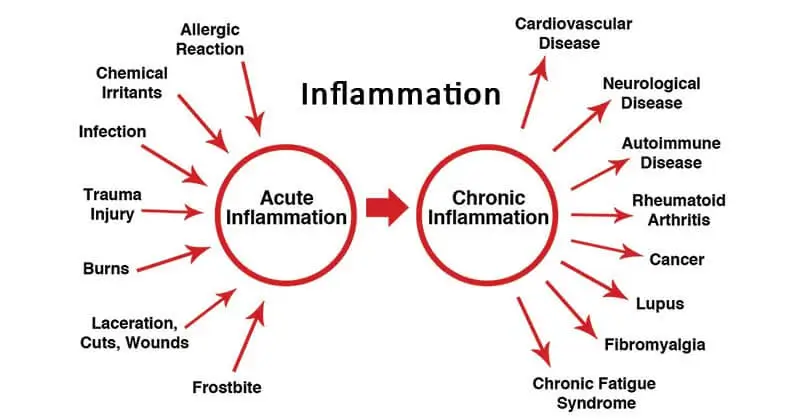
Wir verfügen über einen eigenen Abwehrmechanismus gegen Entzündungen und Schäden durch freie Radikale. Da wir jedoch im Laufe unserer Evolution eine enorme Menge pflanzlicher Antioxidantien zu uns genommen haben, müssen wir zu dem Schluss kommen, dass wir immer noch auf pflanzliche Antioxidantien angewiesen sind, um uns vor Oxidation und DNA-Schäden zu schützen. Wenn wir auf die Einnahme von Vitamin C angewiesen sind, sind wir auch auf die Einnahme anderer Antioxidantien angewiesen. Die Medizin schreibt keine RDA für Antioxidantien im Allgemeinen vor und betrachtet sie nicht als essentiell. Ich und viele andere Ärzte, die durch eine Vielzahl wissenschaftlicher Studien gestützt werden, neigen dazu, anderer Meinung zu sein.
Es stimmt, dass wir nicht sterben werden, wenn wir keine großen Mengen an Antioxidantien zu uns nehmen, zumindest nicht sofort. Aber wir werden trotzdem vorzeitig sterben.
Wir werden stärkere Entzündungen und eine stärkere Oxidation haben, was auf lange Sicht zu Krebs und einer Vielzahl anderer Krankheiten führen, die allgemeine Gesundheit und das Wohlbefinden beeinträchtigen und unsere Lebensspanne verkürzen wird. Antioxidantien sind nach wie vor unverzichtbar.
Vitamin C
Tierische Produkte enthalten keine sekundären Pflanzenstoffe und ausreichend Antioxidantien. Im Durchschnitt enthalten pflanzliche Lebensmittel mehr als 60-mal mehr Antioxidantien als tierische Lebensmittel. Darüber hinaus ist Fleisch allein entzündungsfördernd und auch das Kochen allein ist mutagen und entzündungsfördernd Toxine aus der Biomagnifikation in der Nahrungskette plus überschüssiges Hämeisen.
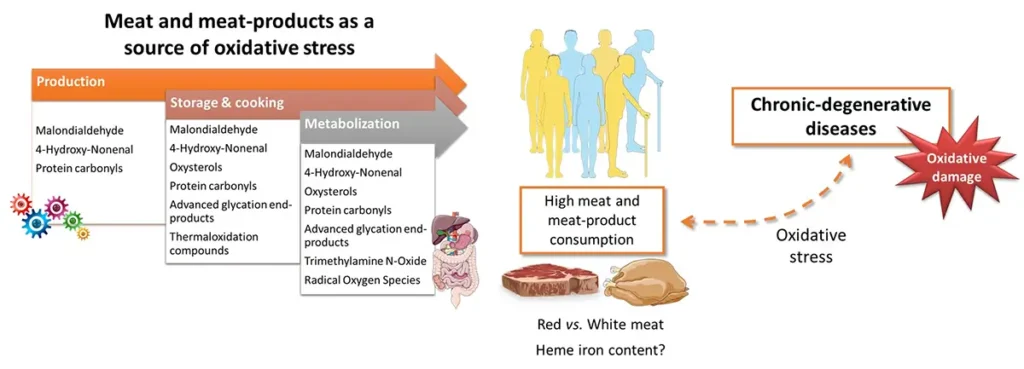
Es gibt einen Grund, warum Fleischfresser ihr eigenes Vitamin C herstellen. Tatsächlich synthetisieren die meisten Tiere ihr eigenes Vitamin C. Eine typische 155-Pfund-Ziege ist in der Lage, täglich über 13 Gramm Ascorbatsäure (Vitamin C) zu produzieren. Ziegen wiegen durchschnittlich 155 Pfund, leben in der Natur und fressen den ganzen Tag Gemüse. Unter Stress konnten Ziegen die Produktion von Ascorbinsäure (Vitamin C) drastisch steigern, und zwar um das bis zu 13-fache des normalen Niveaus im Vergleich zu Nichtstress (Stein, 1979). Bei erheblichen gesundheitlichen Belastungen würde Ascorbinsäure als biologischer Abwehrmechanismus in großen Mengen gebildet. Dies könnte erklären, warum Wildtiere dazu neigen, strahlend gesund zu bleiben, bis sie im Alter erliegen (Marshall et al., 2011). Zum Vergleich: Die von Ernährungswissenschaftlern vorgeschlagene und verwendete empfohlene Nahrungsdosis an Vitamin C für den Menschen beträgt 90 Milligramm. Und das liegt daran, dass wir auch auf andere Arten von Antioxidantien aus Obst und Gemüse angewiesen sind und diese in unserer normalen Ernährung enthalten sind. Wenn wir die durchschnittliche Ziege mit dem durchschnittlichen Menschen vergleichen, können wir leicht erkennen, dass wir viel stärker und viel stärker Giftstoffen und Umweltverschmutzung ausgesetzt sind als in der Vergangenheit.
In dem Vortrag geht es um die Rolle von Vitamin C (Ascorbinsäure) bei verschiedenen Funktionen im Körper und darum, dass es Forschungsergebnisse im Gesundheitswesen gibt, die oft vergessen, geleugnet und angezweifelt werden. Dr. Humphries hat eine historische Perspektive auf Vitamin C und seine Bedeutung bei verschiedenen Krankheiten, beschreibt aber auch seine Rolle für die Gesundheit im Allgemeinen.
Longevity Essentials, Jun 25, 2021,
Wir sollten heute mehr Antioxidantien zu uns nehmen als in der Paleo-Zeit, und wir nehmen sie überhaupt nicht zu uns. Die Die amerikanische Standarddiät (SAD) ist so traurig, dass Kaffee das darin enthaltene Antioxidans Nummer eins ist. Wenn wir das wissen, können wir erkennen, dass wir in ernsthaften Schwierigkeiten stecken. Die meisten Kalorien stammen aus Fett, Zucker, raffiniertem Mehl, Fleisch, Eiern und Milchprodukten. Wo sind die Antioxidantien? Nirgends. Und wo sind Entzündungen und Krebs? Überall.
Die pflanzliche Nahrung war so groß und machte einen großen Teil unserer Ernährung aus, dass wir keinen so starken Abwehrmechanismus gegen Oxidation entwickeln mussten, aber genau das ist es, was uns heute ein ernstes Problem bereitet, da wir unsere Ernährung komplett umgestellt haben. Außerdem sind wir heute folgenden Einflüssen ausgesetzt toxische Überlastung sowohl aus der Nahrung als auch aus der Umwelt. Einerseits mangelt es uns an Antioxidantien, andererseits sind wir übermäßig Mutagenen und Toxinen ausgesetzt. Selbst Menschen mit einer fehlgeleiteten Keto-Paleo-Diät essen immer noch mehr Gemüse und nehmen mehr Antioxidantien zu sich als Menschen mit einer amerikanischen Standarddiät.
DNA-Schaden
Antioxidantien sind wichtig, weil sie Schäden an der DNA verhindern und auch die Alterungsgeschwindigkeit beeinflussen. Altern ist nur Oxidation und die Menschen wissen das nicht. Das Element, das uns Leben gibt, Sauerstoff, ist auch das Element, das uns den Tod gibt. Es ist irgendwie ironisch. Sauerstoff ist ein äußerst reaktiver Stoff. Ohne es kann Feuer nicht brennen. Es reagiert auf jedes Molekül, das es versuchen kann, sich mit ihm zu verbinden oder ihm sein Elektron zu stehlen. Selbst Metalle wie Eisen sind dagegen nicht immun. Mit der Zeit wird Eisen zu Eisenoxid, also zu Rost. Bei der normalen Zellatmung wandeln Stoffwechselreaktionen biochemische Energie aus Nährstoffen unter Verwendung von Sauerstoff in Adenosintriphosphat (ATP) um. Innerhalb von 6 Minuten unter Sauerstoffmangel stirbt unser Gehirn. Sogar Pflanzen, die bei der Photosynthese Sauerstoff abgeben, wenn keine Sonne scheint, beginnen, Sauerstoff aus der Luft und dem Boden aufzunehmen, um Zucker abzubauen und zur Energiegewinnung zu nutzen, genau wie Menschen.
Aber so etwas wie Perfektion gibt es in der Natur nicht.
Ein Teil dieses Sauerstoffs „entweicht“ als freies, ungebundenes reaktives Molekül, das als freies Radikal bezeichnet wird, und beginnt dann mit allen anderen Molekülen um ihn herum zu reagieren, was zu einer Kaskade molekularer Reaktionen führt, die letztendlich zu Zellschäden führen.
Einige der geschädigten Zellen beenden auf natürliche Weise ihren Lebenszyklus und sterben ab. An ihre Stelle treten neue aus der Division.
Je höher der Stoffwechsel, desto höher der Schaden und desto höher die Spaltung.
Diese Schädigung der DNA wird als Alterung bezeichnet. Da Zellen während der normalen Zellatmung geschädigt werden, halbiert sich die DNA, um beschädigte Zellen zu reparieren. Dabei werden die Telomere halbiert. Jedes Mal, wenn sich die DNA vermehrt, halbiert sie die Enden der Chromosomen, die die DNA vor Fehlfaltungen schützen. A Telomer ist ein kleiner Bereich wiederholter Nukleotidsequenzen an jedem Ende eines Chromosoms.
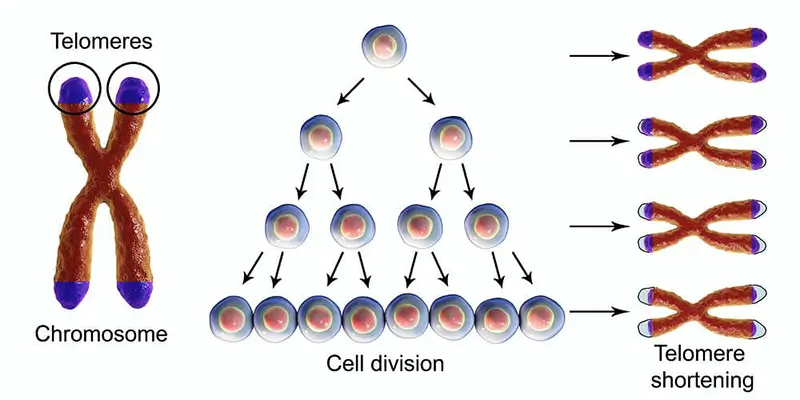
Der Zweck des Telomers besteht darin, das Ende des Chromosoms vor Zerfall oder Verschmelzung mit anderen benachbarten Chromosomen zu schützen. Während der Chromosomenduplikation können die Enzyme, die die DNA duplizieren, ihre Duplikationseinheit am Ende eines Chromosoms beibehalten. Bei jeder Duplikation wird das Ende des Chromosoms verkürzt. Nach zu vielen Teilungen sind die Telomere verschwunden und es gibt keine weiteren Teilungen, sondern nur noch den Tod. Es ist ein Prozess namens Altern.
Wir können diesen Prozess verlangsamen und unsere Lebenserwartung erhöhen, indem wir oxidative Schäden durch einen hohen Anteil an Antioxidantien in der Ernährung verlangsamen, und wir können ihn verlangsamen, indem wir die Energieeffizienz erhöhen, indem wir unsere Stoffwechselrate senken. Außerdem verkürzt jede Art von DNA-Schädigung unsere Lebensspanne, nicht nur oxidative. Dazu gehören Strahlung, Umweltverschmutzung, Giftstoffe und jede Art von physischem oder chemischem Schaden. Oxidative Schäden können nicht gestoppt werden. Das Problem ist, dass nichts in der Natur zu 100 % wirksam ist. Ein Teil des Sauerstoffs in unseren Zellen entweicht in Form von freien Radikalen und oxidiert an anderer Stelle.
Irgendwann wird es keine Spaltung und Wiederholung der DNA mehr geben, sondern nur noch Schaden und Tod. Schuld daran ist neben anderen Giftstoffen auch Sauerstoff.
Dies betrifft jeden lebenden Organismus, einschließlich Pflanzen. Die Art und Weise, wie Pläne sich dagegen wehren, besteht darin, Substanzen zu schaffen, die ein oder mehrere zusätzliche Elektronen haben, die sie an den Sauerstoff abgeben können, um den Schaden zu neutralisieren. Diese werden als Antioxidantien bezeichnet. Es gibt eine unterschiedliche Palette von Antioxidantien, die Pflanzen produzieren können, und die im Pflanzenreich am häufigsten vorkommende Art sind die bereits erwähnten Pflanzenpigmente. Diese Pigmente schützen die Pflanze neben der Oxidation auch vor Schäden durch UV-Strahlung.
Zwei wichtige Antioxidantien sind für uns auch Vitamine. Zunächst wurde bereits Vitamin C erwähnt, das wasserlöslich ist und freie Radikale in Wasserlösungen im Körper neutralisiert. Dies ist der Hauptunterschied zwischen den beiden. Das zweite Vitamin E ist öllöslich (Öl und Wasser vermischen sich nicht) und gelangt zu den Teilen, die aus Fett bestehen, wo wasserlösliches Vitamin C nicht hinkommt, und neutralisiert dort freie Radikale. Beispielsweise ist das Gehirn ein „fettreiches“ Organ und ein schwerwiegender Vitamin-E-Mangel äußert sich in Neuropathie und Myopathie, da Vitamin E für die Entwicklung und Aufrechterhaltung des Zentralnervensystems unerlässlich ist. Vitamin E könnte die Lipidoxidation überall im Körper verhindern und ohne ausreichende Zufuhr würden gesundheitliche Probleme auftreten. Beta-Carotin ist ebenfalls ein fettlösliches Pigment.
Antioxidativer Stoffwechsel
Wenn Antioxidantien ihr Elektron abgeben, werden sie selbst zu Pro-Radikalen. Es ist wichtig, dies zu verstehen. Es gibt keine, oder sagen wir mal so, sehr seltene Arten von Antioxidantien, die "nur" Elektronen abgeben und sich nicht selbst in freie Radikale verwandeln. Es gibt einige, die ich in entsprechenden Artikeln besprechen werde. Wenn eine Substanz eine schwache Bindung zu ihrem Elektron hat und einige reaktivere Substanzen wie freie Radikale oder Toxine eine stärkere Kraft haben, wird sie dieses Elektron wegziehen. Aber dennoch möchte selbst das Antioxidans, das zu einem schwachen freien Radikal wurde, sein Elektron zurück. Die Kraft oder Reaktivität dieses neu gebildeten freien Radikals ist viel weniger reaktiv, aber es möchte dennoch sein Elektron zurück.
Jedes Mal, wenn wir Antioxidantien konsumiert haben, werden diese im Körper zu Proradikalen.
Die Art und Weise, wie sich unser Körper entwickelt hat, um damit umzugehen, besteht darin, über verschiedene Enzyme zu verfügen, die diese neuen Substanzen neutralisieren. Die Logik dahinter ist folgende: Das stärkste Gift wird neutralisiert, dann das schwächere, und am Ende wird das schwächste aus dem Körper entfernt bzw. neutralisiert. Es handelt sich um eine chemische Kaskadenreaktion, die einige Zeit anhält, bis der Körper die Giftstoffe oder freien Radikale entfernt. Wenn wir ausreichende Mengen an Antioxidantien zu uns nehmen, neutralisieren sie die stärksten freien Radikale und dann die schwächeren, und im Endeffekt wird der Schaden minimiert. Dafür sind jedoch die enzymatischen Wege im Körper erforderlich.
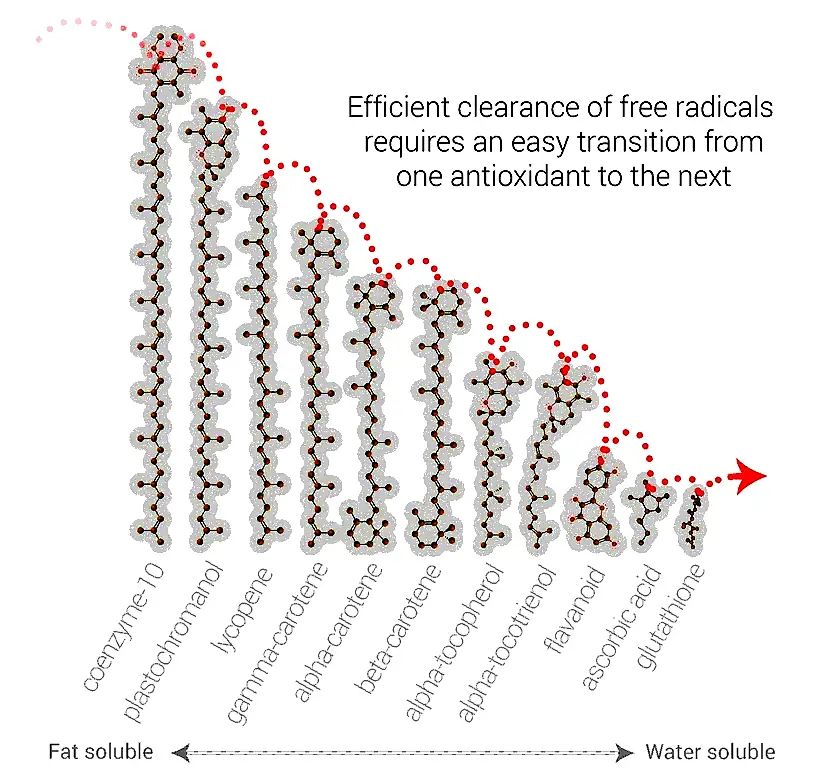
Wenn Sie lediglich Vitamin E oder Beta-Carotin in extrahierter Form als Nahrungsergänzung einnehmen, schaden Sie sich selbst mehr, als dass Sie davon profitieren. Dies ist ein Grund, warum einige extrahierte Antioxidantienpillen nicht wirken. Sie können so viel Vitamin E einnehmen, wie Sie möchten, aber dadurch werden nicht alle freien Radikale neutralisiert, da nicht genügend andere Enzyme auf der ganzen Linie vorhanden sind, um diesen unnatürlichen und übermäßigen Vitamin-E-Spiegel auszunutzen. Der größte Teil dieses Vitamin E wird vom Körper aufgenommen nicht in der Lage sein, es richtig zu entfernen oder zu verwenden, und das wird von selbst Schaden anrichten. Nur vollwertige, unverarbeitete Pflanzennahrung, die von Natur aus reich an Antioxidantien ist, zeigte in experimentellen Untersuchungen einen Nutzen. In einigen Fällen erhöhten zusätzliche Antioxidantien das Sterberisiko. Sie waren schlimmer als einfach nichts zu tun, und Menschen, die sie nehmen, zahlen dafür, ein kürzeres Leben zu führen. In dieser Metaanalyse (Bjelakovic et al., 2007) Forscher schlossen 68 randomisierte Studien mit 232.606 Teilnehmern (385 Veröffentlichungen) ein. Das Fazit lautete Antioxidanspräparate deutlich erhöhte Sterblichkeit. Beta-Carotin, Vitamin A und Vitamin E führten einzeln oder in Kombination zu einer signifikanten Erhöhung der Sterblichkeit, Vitamin C und Selen hatten jedoch keinen signifikanten Einfluss auf die Sterblichkeit.
Aber auch hier müssen wir objektiv sein. In den meisten Versuchen verwendeten sie synthetisches Vitamin E und Beta-Carotin. Es gibt einen molekularen Unterschied zwischen natürlich vorkommendem Vitamin E und dem Molekül, das von Nahrungsergänzungsmittelherstellern hergestellt wird.
Zusätzliches Vitamin E
Die Industrie kann Vitamin E mit der gleichen Molekülstruktur nicht im Labor herstellen, weil das zu teuer wäre. Sie vermarkten Nahrungsergänzungsmittel, die kein Vitamin E sind, als Vitamin E.
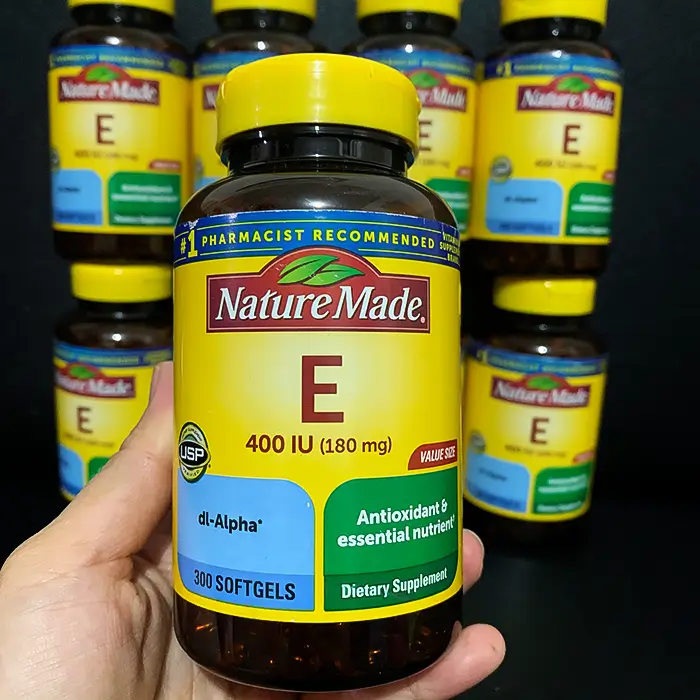
Natürliches α-Tocopherol, das von in Lebensmitteln vorkommenden Pflanzen hergestellt wird, weist eine RRR-Konfiguration an der 2-, 4'- und 8'-Position des α-Tocopherolmoleküls auf (fälschlicherweise als d-α-Tocopherol bezeichnet). Chemisch synthetisiertes all-rac-α-Tocopherol (allracemisches-α-Tocopherol; fälschlicherweise als dl-α-Tocopherol bezeichnet) ist eine Mischung aus acht Stereoisomeren von α-Tocopherol, die aus den drei chiralen Kohlenstoffen an den 2, 4'-Positionen entstanden sind. und 8'-Positionen: RRR-, RSR-, RRS-, RSS-, SRR-, SSR-, SRS- und SSS-α-Tocopherol. Während alle Stereoisomere in vitro die gleiche antioxidative Aktivität aufweisen, erfüllen nur die Formen in der R-Konformation an Position 2 (bezeichnet als 2R) den Vitamin-E-Bedarf des Menschen.
Das ist nichts Neues. Jeder, der sich mit Ernährung und Medizin beschäftigt, weiß, dass synthetisches Vitamin E in vivo keine antioxidative Wirkung hat. Es ist eine gefälschte Vitaminpille, die zur Anreicherung von Babynahrung verwendet wird.
Chemisch gesehen handelt es sich bei natürlichem Vitamin E um D-Alpha-Tocopherol, während es sich bei synthetischem Vitamin E um D-Alpha-Tocopheryl handelt. Wenn Sie nach einer natürlichen Form von Vitamin E suchen, wählen Sie immer eine mit „d“ (nicht „dl“) und das Wort Tocopherol endet mit „ol“ (nicht „yl“).
In Vollwertkost gibt es neben Alpha, das als Vitamin gilt, auch andere Arten von Tocopherolen. Es gibt Beta- und Gamma-Tocopherole und sie haben ihre spezifischen physiologischen Vorteile. Übermäßige Mengen an natürlichem Vitamin E könnten, und ich sage hier, vielleicht nicht so schlimm sein wie eine übermäßige Menge an synthetischem Vitamin E.
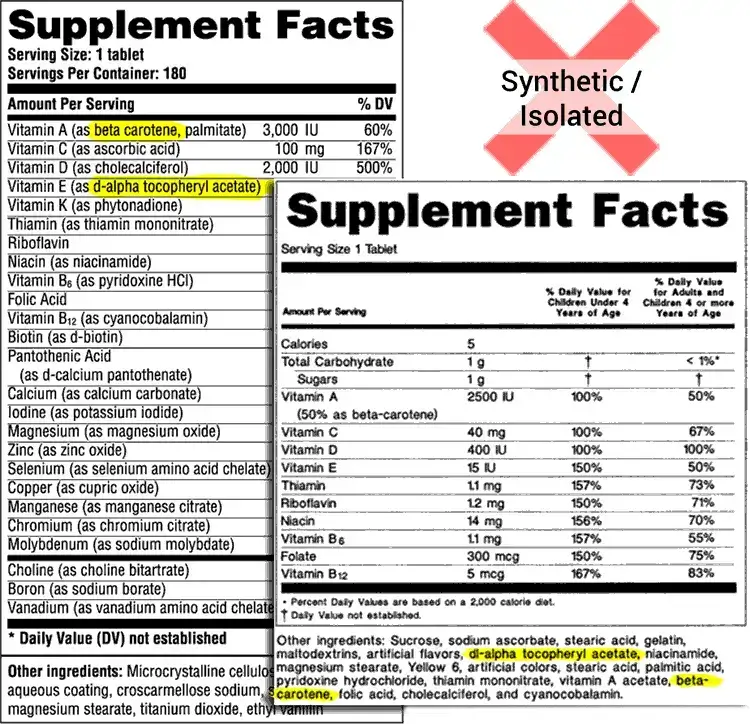
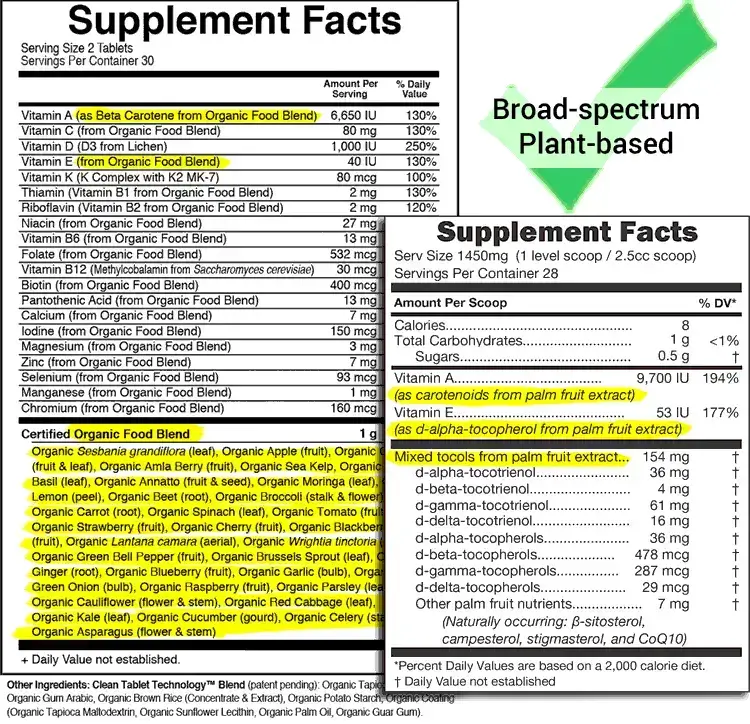
Der wirkliche Nutzen einer Vitamin-E-Ergänzung liegt dort, wo die Vitamin-E-Zufuhr über die Nahrung nicht ausreichend ist. Normalerweise haben Menschen, die eine Menschen, die sich in der amerikanischen Standarddiät ernähren, weisen einen Vitamin-E-Mangel auf weil Vitamin E in Ölen von Nüssen und Samen in einer Vollwertkostpackung enthalten ist. Wenn du Öl extrahieren Wenn das Öl mit Sauerstoff in Berührung kommt, oxidiert das Vitamin E, oder mit anderen Worten, das Öl wird ranzig. Wenn Sie eine Nuss oder einen Samen aufbrechen und sofort verzehren, haben Sie den vollen Nutzen von natürlichem Vitamin E. Wenn Sie eine Nahrungsergänzung wünschen und nicht genug pflanzliche, ölhaltige Vollwertkost essen, dann suchen Sie nach einem Präparat, das eine natürlich extrahierte Mischung aus verschiedenen Tocopherolen enthält, darunter Alpha-, Beta-, Gamma- und Delta-Typen.
Manche Samen enthalten nur einen Typ, z. B. enthalten 100 Gramm Leinsamen 20,0 mg Gamma-Tocopherol, aber nur 0,3 mg Alpha-Tocopherol. Wenn Sie das nicht wissen, könnten Sie denken, dass es kein Vitamin E enthält, weil es auf dem Etikett nicht angegeben ist. Nur der Alpha-Typ ist aufgeführt und als Vitamin anerkannt, aber das ist kein vollständiges Bild. Die meisten Phytochemikalien, die nicht als Vitamine anerkannt sind, werden auf keinem Etikett aufgeführt. Aktuelle wissenschaftliche Daten deuten darauf hin, dass eine Ergänzung mit einer natürlichen Mischung von Tocopherolen bei einem Vitamin-E-Mangel von Vorteil ist und eine darüber hinausgehende Ergänzung keinerlei zusätzlichen Nutzen bringt und zu Problemen führen kann (Dotan et al., 2009). Die gleiche Geschichte gilt für Beta-Carotin.
Es gab eine Reihe von Studien, die einen Zusammenhang zwischen Lungenkrebs, insbesondere bei Rauchern, und Herz-Kreislauf-Erkrankungen und zusätzlicher Beta-Carotin-Zufuhr fanden. Warum das passiert, wissen sie nicht. Bisher gibt es nur Spekulationen, da dieser Zusammenhang nicht besteht, wenn Beta-Carotin in einer Vollwertpackung verzehrt wird. Der Grund dafür ist, dass Vollwertkost eine Reihe anderer sekundärer Pflanzenstoffe enthalten könnte, die synergetisch mit Beta-Carotin wirken. Personen, die rauchen, sollten keine Beta-Carotin-Ergänzungsmittel einnehmen, und das sollte eigentlich jeder tun. Beta-Carotin lagert sich im Fettgewebe des Körpers ab und kann mit der Zeit die Haut färben. Wenn Sie zu viele Karotten essen, kann Ihre Haut orange werden. In extremen Fällen haben Menschen eine orangefarbene Nase oder Handflächen.
Es ist ein medizinischer Zustand, der als Carotinämie und der Zustand ist im Allgemeinen harmlos. Aber wegen der sexuellen Anziehungskraft nehmen die Menschen zusätzliches Beta-Carotin ein, weil es bequemer ist, als jeden Tag Karotten zu entsaften. In einer Reihe von Experimenten wurde festgestellt, dass Menschen, die eine geringe Menge oder, sagen wir, ein Anfangsstadium der Karotinämie haben, für das andere Geschlecht attraktiver aussehen. Es ist ein schöner "goldener Schimmer" gesunder, junger Haut. Dies könnte eine unbewusste Reaktion der Evolution gewesen sein, um dem anderen Geschlecht zu signalisieren, dass es sich um ein gesundes Individuum mit einer gesunden Ernährung handelt. Das bedeutet eine größere Chance auf eine erfolgreiche Schwangerschaft. Es könnte ein Gesundheitsindikator sein, und dieser Anreiz wird von einigen Menschen als eine Art Nahrungsergänzung genutzt, um sich ein schönes, gesundes Aussehen zu verleihen. Wenn Sie Beta-Carotin als Nahrungsergänzung zu sich nehmen wollen, sollten Sie immer die natürliche Form davon nehmen. Eine gesunde Dosierung von Beta-Carotin liegt im Durchschnitt bei sechs bis acht Milligramm pro Tag. In einem Gesundheitsblog der Columbia University heißt es, dass man bis zu 20 Milligramm pro Tag (oder drei große Karotten) zu sich nehmen muss, um eine Karotinämie zu entwickeln. Wie Vitamin E sind auch Alpha-, Beta- und Gamma-Carotine sowie eine ganze Reihe anderer Pigmente in natürlichen Vollwertkost enthalten. Auch hier sollten Sie also nach Möglichkeit immer eine Vollwertquelle für sekundäre Pflanzenstoffe wählen. Forscher der Cleveland Clinic führten eine Meta-Analyse durch, in der sie die Ergebnisse von acht Studien über die Wirkung von Beta-Carotin in Dosierungen von 15 bis 50 Milligramm zusammenfassten. Nach der Untersuchung der Daten von über 130 000 Patienten stellten die Forscher fest, dass die Einnahme von Beta-Carotin (wobei es sich bei den meisten Nahrungsergänzungsmitteln um eine synthetische Form von Carotin handelte) zu einem geringen Anstieg der kardiovaskulären Todesfälle führte (Vivekananthan et al., 2003).
Öllösliche Antioxidantien wie Vitamin E und Beta-Carotin sind wichtig für die Vorbeugung von Herzerkrankungen, da angenommen wird, dass oxidiertes LDL eine wichtige Rolle bei der Pathogenese von Herzerkrankungen spielt Arteriosklerose. Beobachtungsstudien haben Alpha-Tocopherol (Vitamin E), Beta-Carotin und andere öllösliche Pigmente und Antioxidantien mit einer Verringerung kardiovaskulärer Ereignisse in Verbindung gebracht, aber auch dies ist auf Nahrungsquellen dieser Antioxidantien zurückzuführen. Bei der Recherche im Ergänzungsformular sah es anders aus. Da Beta-Carotin eine öllösliche Substanz ist, erhöht sich die Absorption, wenn Sie Ihren Karotten einige Nüsse oder Samen hinzufügen. Wenn Sie jedoch eine ergänzende Form von Beta-Carotin wünschen, wählen Sie ein Nahrungsergänzungsmittel aus natürlichen Quellen und übertreiben Sie es nicht mit den Mengen.
Es gibt viel bessere ergänzende Antioxidantien, die keine negativen Auswirkungen haben und zehn- bis hundertmal wirksamer sind als Beta-Carotin oder ergänzendes Vitamin E. Aber noch einmal: Vitamin E ist ein Vitamin und spielt eine wichtige Rolle für das Funktionieren des Körpers, und man muss es in ausreichender Menge mit der Nahrung zu sich nehmen oder, wenn die Nahrung nicht ausreicht, ein Ergänzungsmittel einnehmen. Es besteht auch der Irrglaube, dass unser Körper nicht genügend Beta-Carotin aus der veganen Ernährung aufnehmen und verwerten kann, um Vitamin A zu bilden, weil Retinol oder Vitamin A aus tierischen Quellen das "echte" Vitamin A ist, so dass Veganer Vitamin A supplementieren müssen. Es ist nur ein weiterer Mythos. Er kann wahr sein, wenn Sie das sind, was ich gerne als Junk-Veganer bezeichne, der Pommes frites isst und trinkt Coca ColaBei einer normalen veganen Vollwerternährung ist dies jedoch nicht der Fall. Wenn Sie einige starke ergänzende Antioxidantien zu sich nehmen möchten, haben diese keine negativen Nebenwirkungen.
Da wir als Spezies nicht mehr in der Lage sind, Vitamin C zu produzieren, sind wir auf externe Quellen angewiesen. Es gibt auch andere innere Antioxidantien, die unser Körper produzieren kann. Das bekannteste ist Glutathion. Dennoch müssen wir uns an eine einfache Tatsache erinnern. Wir als vegane Primaten, die während des größten Teils unserer Evolution nichts weiter als grüne Blätter und Früchte gegessen haben, sind unabhängig davon, was die allopathische Medizin als Narrativ propagiert, immer noch auf eine optimale Aufnahme von Antioxidantien aus der Nahrung angewiesen. Der Wille nimmt zu Gehalt an Antioxidantien unser Leben verlängern? Das wird es, aber es wird uns nicht unsterblich machen. Es wird uns mehr Schutz vor modernen Wohlstandskrankheiten bieten, unsere Gesundheit steigern und uns als Nebeneffekt am Ende vielleicht noch ein paar Jahre mehr bescheren. Das Hauptziel ist jedoch die Prävention von Krankheiten.
Alterungsrate
Es gibt jedoch wissenschaftliche Studien zu unserem Langlebigkeit. In den letzten Jahren hat sich die Wissenschaft der Vorstellung zugewandt, dass Altern nichts anderes als die Krankheit selbst sei. Und da ist etwas Wahres dran.
Wenn wir uns das Tierreich ansehen, ist der Schaden umso schneller, je höher der Stoffwechsel der Art ist, oder mit anderen Worten, je mehr Energie die Zellen in der Zeiteinheit verbrauchen müssen, um zu existieren. Winzige Tiere mit schnellen Stoffwechselraten haben eine kürzere Lebensspanne als beispielsweise Riesenschildkröten mit extrem langsamen Stoffwechselraten, die im Durchschnitt eine Lebenserwartung von 80 bis 150 Jahren haben.
Haben Sie sich jemals gefragt, wie viele Herzschläge ein gewöhnlicher Mann in seinem Leben hat? Es stellt sich heraus, dass jedes Tier etwa eine Milliarde Schläge bekommt. Je höher die Stoffwechselrate ist, desto mehr Sauerstoff wird verbraucht und desto mehr Blutzirkulation und Intensität der Panade sind erforderlich.
Kleinere Tiere haben einen höheren Stoffwechsel und ihr Herz schlägt schneller. Wenn wir die Anzahl der Schläge für unterschiedliche Größen verschiedener Tierarten berechnen, beträgt die magische Zahl eine Milliarde. Katzen, Kaninchen, Wale, Schweine, Elefanten, egal, es sind immer eine Milliarde. Im Gegensatz dazu sind Menschen und Bärte im Allgemeinen einige der Spezies, die wir besser bekommen haben. Wir haben mehr als das Doppelte der üblichen natürlichen Zahl für andere Arten. Für uns rund 2,21 Milliarden.
Man nennt sie die Rate of Living-Theorie. Die Idee wurde ursprünglich von Max Rubner im Jahr 1908 geäußert. Er stellte fest, dass größere Tiere immer länger lebten als kleinere und dass die größeren Tiere einen langsameren Stoffwechsel hatten. Diese Ergebnisse wurden durch die Entdeckung des Max-Kleiber-Gesetzes im Jahr 1932 weiter untermauert. Kleiber ging davon aus, dass der Grundumsatz korrekt vorhergesagt werden kann, indem man 3/4 des Körpergewichts als Potenz nimmt.
Diese Theorie ist umgangssprachlich als Maus-zu-Elefant-Kurve bekannt. Diese Theorie wird durch Studien gestützt, die einen niedrigeren Grundumsatz (erkennbar an einem verringerten Herzschlag) mit einer erhöhten Lebenserwartung in Verbindung bringen.
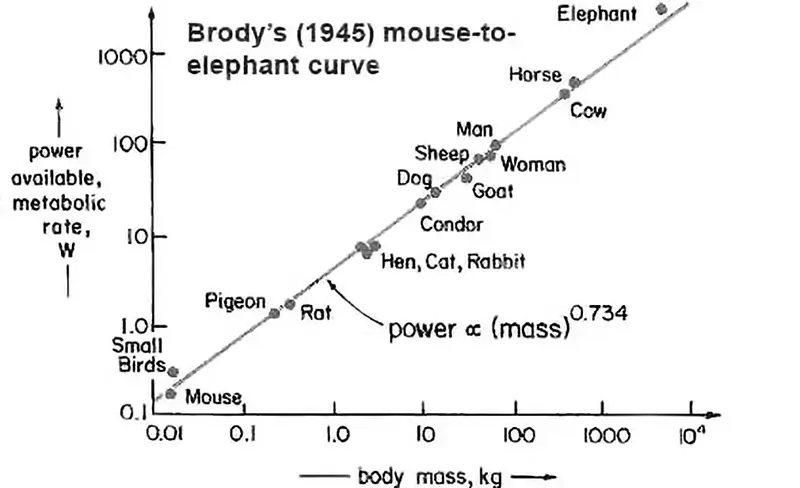
In den letzten Jahren haben Wissenschaftler mit der Erforschung der Langlebigkeit von Vögeln begonnen. Im Allgemeinen leben Vögel etwa zwei- bis dreimal so lange wie Säugetiere. Bemerkenswert ist, dass Vogelzellen pro Zeiteinheit bis zu 2,5 Mal so viel Sauerstoff verbrauchen können wie Säugetierzellen. Kombiniert man die Tatsache, dass Vögel eine hohe Stoffwechselrate und einen hohen Sauerstoffverbrauch haben, mit ihrer verlängerten Lebenserwartung, so ergibt sich ein ungelöstes wissenschaftliches Phänomen. Vögel haben bestimmte Abwehrmechanismen gegen die durch freie Radikale verursachten Schäden entwickelt. Die Einzelheiten dieser vorbeugenden Maßnahmen sind nach wie vor ein Rätsel. Die Erforschung der Langlebigkeit ist ein heißes Thema in der modernen Wissenschaft von heute mit großen Aussichten für die Zukunft.
Es wird von Bedeutung sein, insbesondere in der Pharmazie, das ist es bereits. Da steckt viel Geld und die Zukunft der Arzneimittelforschung drin. Die Pharmaindustrie führt heute Studien zu einer Vielzahl von Chemikalien durch, darunter beispielsweise Verbindung SRT1720. Universal Kalorienbeschränkung Pille, alles was wir essen können und trotzdem die Vorteile haben. SRT1720 ahmt eine diätetische Einschränkung nach und mildert viele der negativen Folgen von Fettleibigkeit und einer fettreichen Ernährung ohne Toxizität.
In der Zukunft könnten wir vielleicht eine ähnliche Pille bekommen, aber bis dahin bleibt uns nur eine diätetische Intervention. Wir müssen unsere Antioxidantienzufuhr optimieren, egal wie sehr die allopathische Medizin den Glauben verstärkt, dass Antioxidantien keine Bedeutung haben. Gleichzeitig betreiben sie wissenschaftliche Untersuchungen zur Langlebigkeit für Musterzwecke.
Astaxanthin, MegaHydrate oder einfach nur Curcumin
Wenn wir das, was wir derzeit haben können, ergänzen wollen, dann etwas in Form von starken universellen Antioxidantien wie z Astaxanthin, MegaHydrate oder einfach nur Curcumin.
Derzeit ist MegaHydrate das stärkste der Wissenschaft bekannte Nahrungsantioxidans. Es handelt sich um ein künstliches synthetisches Antioxidans, das gleichzeitig auch als Viskositätsmittel wirkt. Es zwingt Wassermoleküle dazu, sich in der geometrischen Struktur anzuordnen, während in flüssiger Form aus normalem Wasser Flüssigkristalle entstehen, wodurch dessen Viskosität und Oberflächenspannung verringert werden. Flüssigkristall ist der vierte Zustand von Wasser. Gleichzeitig verfügt es über reinen ionisierten Wasserstoff als Lieferant freier Elektronenantioxidantien. Wegen all der New-Age-Überzeugungen seines Erfinders werde ich immer gefragt, was ich davon halte, und ich weiß es nicht. Einige Untersuchungen dazu sind solide, aber es bedarf noch weiterer Forschung, und es scheint, dass die wissenschaftliche Grundlage bisher solide ist. Dies könnte auch Menschen mit Herz-Kreislauf-Erkrankungen helfen, da es die Viskosität des Blutes senkt. Das kann eine gute und eine schlechte Sache sein, wenn man es übertreibt und in einen Unfall gerät, verblutet man. Auch wenn Sie es übertreiben, besteht das Risiko einer kardiologischen Pathophysiologie. Die Kombination aus Gewebehypoxie und verringerter Blutviskosität führt zu einem verringerten systemischen Gefäßwiderstand. Der Körper reagiert auf einen verringerten systemischen Gefäßwiderstand mit einer erhöhten Natrium- und Wasserretention, was zu einem erhöhten Schlagvolumen und einer erhöhten Herzleistung führt. Außerdem ist dieser Stoff zu 100 Prozent synthetisch und kann Prozesse im Körper stören. Aus diesem Grund bedarf es weiterer Forschung. Der Körper reagiert auf einen verringerten systemischen Gefäßwiderstand mit einer erhöhten Natrium- und Wasserretention, was zu einem erhöhten Schlagvolumen und einer erhöhten Herzleistung führt. Außerdem ist dieser Stoff zu 100 Prozent synthetisch und kann Prozesse im Körper stören. Aus diesem Grund bedarf es weiterer Forschung. Der Körper reagiert auf einen verringerten systemischen Gefäßwiderstand mit einer erhöhten Natrium- und Wasserretention, was zu einem erhöhten Schlagvolumen und einer erhöhten Herzleistung führt. Außerdem ist dieser Stoff zu 100 Prozent synthetisch und kann Prozesse im Körper stören. Aus diesem Grund bedarf es weiterer Forschung.
Patrick Flanagan erzählt, wie er Crystal Energy, Microhydrin und MegaHydrate entdeckt hat. Seine Forschungen führten ihn seit seiner frühen Jugend dazu, die Geheimnisse des Hunza-Wassers zu entdecken und herauszufinden, wie ionisierter Wasserstoff und ein kolloidales Mineral mit anomalen Eigenschaften sehr vorteilhaft für die Regeneration Ihres Körpers sein können.
Das stärkste natürliche Antioxidans, das der Wissenschaft bekannt ist, ist Astaxanthin. Der Vorteil dieser Substanz besteht darin, dass sie sich nicht in Pro-Radikale verwandeln würde. Es gibt seine Elektronen ab und verlässt den Körper. Zweitens hat es als Antioxidans die einzigartige Eigenschaft, sowohl wasserlöslich als auch fettlöslich zu sein. Es ist ein universelles Antioxidans. Es wird von mikroskopisch kleinen Algen zum Schutz vor UV-Strahlung produziert. Der Grund, warum Garnelen, Lachs und rosa Flamingos rot sind, liegt darin, dass sie fressen Astaxanthin. Es handelt sich um eine gut erforschte Substanz mit einem breiten Spektrum an gesundheitlichen Vorteilen. Ich nehme es selbst und empfehle es jedem als zusätzliche Ergänzung, da es keinen internen enzymatischen Prozess stört, was sehr wichtig ist, und als fettlösliches Antioxidans über längere Zeiträume in den Zellmembranen verbleibt und einen dauerhaften und universellen antioxidativen Schutz bietet an der Spitze anderer diätetischer Antioxidantien.
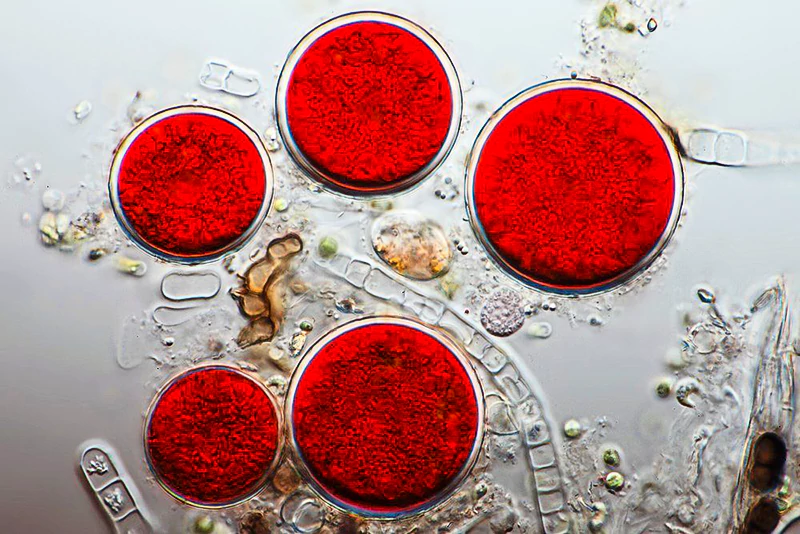
Oxidativer Stress ist nicht nur ein normales Phänomen in gesunden menschlichen Zellen, sondern auch wichtig für das ordnungsgemäße Funktionieren einiger wichtiger Stoffwechselprozesse, einschließlich der Insulinsignalisierung und der Erythropoese. Angesichts der aktuellen physiologischen Forschung scheint es vorteilhafter zu sein, das empfindliche Redox-Gleichgewicht der Zelle aufrechtzuerhalten, als die Antioxidantien-Homöostase durch eine unphysiologische, übermäßige exogene Zufuhr von Antioxidantien zu stören, wenn das Risiko besteht, dass diese externen Antioxidantien einige davon stören könnten dieser Prozesse. Deshalb setzen wir zunächst überwiegend auf Nahrungsmittel und Naturstoffe und auf sehr gut erforschte ergänzende synthetische Moleküle.
Das stärkste und am häufigsten konsumierte Antioxidans in der Nahrung ist Curcumin. Wenn Sie kein Geld mit Astaxanthinen verdienen, dann fügen Sie diese einfach zu Ihrer Ernährung hinzu. Es ist spottbillig.
Es ist ein gelbes Pigment, ein Polyphenol, das in Kurkuma vorkommt. Kurkuma ist in der traditionellen Medizin seit langem für seine therapeutischen Vorteile bekannt. Es hilft bei der Behandlung von metabolischem Syndrom, Arthritis, Angstund Hyperlipidämie sowie oxidative und entzündliche Erkrankungen. Es hilft bei der Kontrolle von Entzündungen jeglicher Art, einschließlich Muskelkater, der durch körperliche Betätigung hervorgerufen wird, was die Erholung und Leistung von Sportlern verbessern würde. Allerdings profitieren auch diejenigen ohne bekannte medizinische Probleme, bei denen chronische Entzündungen eine Rolle spielen, von einer relativ niedrigen Dosis Curcumin als antioxidatives Nahrungsergänzungsmittel zur Langlebigkeit und Gesundheitsprävention. Aufgrund der begrenzten Bioverfügbarkeit von Curcumin hat die alleinige Einnahme von Kurkuma nicht die damit verbundenen gesundheitlichen Vorteile, und Kurkuma ist eine gute Quelle für Oxalsäure, so dass eine Überdosierung nicht in Frage kommt. Es gibt mehrere Substanzen, die die Bioverfügbarkeit verbessern können. So wurde beispielsweise nachgewiesen, dass Piperin, der Hauptwirkstoff von schwarzem Pfeffer, die Bioverfügbarkeit um 2000% verbessert, wenn es mit Curcumin in einem Komplex kombiniert wird. Ich nehme jeden Tag einen Teelöffel mit einem Gramm gemahlenem Pfeffer ein.
Wie viel Antioxidantien?
Müssen wir ergänzen und tun oder wie viel ist optimal, wenn wir uns vollwertig ernähren?
Einheiten, die die antioxidative Kapazität verschiedener Substanzen messen, werden als ORAC bezeichnet. ORAC steht für Oxygen Radical Absorbance Capacity.
Im Jahr 2007 veröffentlichte das USDA die erste Datenbank ORAC-Werte, darunter 277 Lebensmittel. Im Jahr 2010 wurde dann die Studie veröffentlicht, deren Fertigstellung acht Jahre dauerte und den antioxidativen Wert von 3149 Lebensmitteln abdeckte (Carlsen et al., 2010).
Seit heute ist die gesamte Datenbank der USDA-Website mit den ORAC-Werten nicht mehr verfügbar. Dies geschah aufgrund des politischen Drucks. Die Industrie begann sich Sorgen zu machen, weil das Bewusstsein der Menschen gestiegen war. Nicht alle Früchte sind gleich. Das Gleiche gilt für Gemüse. Die Industrie begann zu bemerken, dass diese Datenbank die Entscheidungen der Verbraucher beeinflusst, und das gefiel ihr nicht. Die Politik wurde rückgängig gemacht.
Heute gibt es keine "offizielle" Tageszeitung empfohlener Verbrauch von ORAC-Einheiten. Viele Ärzte würden nicht einmal eine antioxidantienreiche Ernährung vorschlagen, und mehrere Forscher haben vorgeschlagen, dass die ideale Aufnahme nur 3000-5000 ORAC-Einheiten pro Tag beträgt. Sogar das USDA selbst hat empfohlen, nur 5000 ORAC-Einheiten pro Tag zu konsumieren. Die britische FSA und die FDA empfehlen "5 Portionen Obst und Gemüse pro Tag", was einen geschätzten ORAC-Wert von 3500 ergibt. Ich würde vorschlagen, dass wir mindestens 15000 bis mehr als 25000 brauchen, wenn Sie Raucher sind oder irgendwelche Belastung durch Umweltverschmutzung. Zum niedrigsten Wert. Und je mehr, desto besser, wenn man als Quelle nur Vollwertkost berücksichtigt. Ich habe die gesamte Liste direkt aus der Forschungsarbeit und mit einigen zusätzlichen Quellen zusammengestellt. Sie können es hier finden und herunterladen (Orac-Werte).
Aber heute in allopathische Medizin Es ist alles nur ein Witz und, noch schlimmer, eine vorsätzliche Verschwörung. Dies liegt daran, dass Kaffee das Antioxidans Nummer eins in der amerikanischen Standardernährung ist. Das Akzeptieren der ORAC-Empfehlungen bedeutet automatisch dasselbe wie das McGovern-Bericht empfohlen. Ändern Ernährungsempfehlungen oder anders gesagt Ernährungspyramide. Wenn Sie mehr Antioxidantien benötigen, bedeutet das, dass Sie mehr Vollwertprodukte auf pflanzlicher Basis zu sich nehmen müssen und das bedeutet, dass Sie weniger verarbeitete Lebensmittel sowie Fleisch und Milchprodukte zu sich nehmen müssen, die keine Antioxidantien enthalten. Und das ist nicht etwas, was irgendjemand will. Mit Karotten und Grünkohl lässt sich nicht viel Gewinn machen. Es gibt viel weniger sättigende als Pizza und Eis. Allopathische Medizin Und ob Sie es glauben oder nicht, Curcumin ist ein führendes Chemotherapeutikum, das in einigen Fällen eine stärkere krebshemmende Wirkung hat als patentierte Medikamente. Das ist durch die Forschung bewiesen. Bis heute wird in den Praxen der Onkologen nicht darüber gesprochen oder es wird nicht verwendet.
Abschluss
- Phytochemikalien (alle Chemikalien, die Pflanzen produzieren) sind lebenswichtig.
- Wir sind auf antioxidative sekundäre Pflanzenstoffe angewiesen, zwei davon sind für uns Vitamine, Vitamin C und Vitamin E.
- Zu den für uns wichtigsten sekundären Pflanzenstoffen zählen neben Vitaminen auch natürliche Pigmente. Diese Pigmente werden von den Pflanzen als Abwehrmechanismus gegen Schäden durch freien Sauerstoff (Antioxidantien) oder als Abwehr gegen UV-Strahlung erzeugt.
- Oxidativer Stress entsteht, wenn ein Sauerstoffmolekül in einzelne Atome mit ungepaarten Elektronen zerfällt. Diese aggressiven Moleküle werden freie Radikale genannt. Sie sind so aggressiv, dass sie das nächste stabile Molekül angreifen und versuchen, ihm dessen Elektronenteilchen zu stehlen.
- Tierische Produkte enthalten keine sekundären Pflanzenstoffe und ausreichend Antioxidantien.
- Antioxidantien sind wichtig, weil sie Schäden an der DNA verhindern und auch die Alterungsgeschwindigkeit beeinflussen.
- In den letzten Jahren hat sich die Wissenschaft der Vorstellung zugewandt, dass Altern nichts anderes als die Krankheit selbst sei. Wenn wir uns das Tierreich ansehen, ist der Schaden umso schneller, je höher der Stoffwechsel der Art ist, oder mit anderen Worten, je mehr Energie die Zellen in der Zeiteinheit verbrauchen müssen, um zu existieren. Man nennt sie die Rate of Living-Theorie.
- Wenn Antioxidantien ihr Elektron abgeben, werden sie selbst zu Proradikalen. Die Art und Weise, wie sich unser Körper entwickelt hat, um damit umzugehen, besteht darin, über verschiedene Enzyme zu verfügen, die diese neuen Substanzen neutralisieren.
- Nehmen Sie niemals zusätzliche Antioxidantien ein, die im Körper zu Prooxidantien werden
- Nehmen Sie niemals zusätzliche Antioxidantien ein, die über enzymatische Wege aus dem Körper entfernt werden müssen. Sie könnten den natürlichen Abwehrmechanismus des Körpers überfordern. Informieren Sie sich daher vor der Einnahme
- Nehmen Sie niemals zusätzlich Vitamin E, Selen, Beta-Carotin und Lycopin ein – es zeigte sich ein Anstieg Krebsrisiko in ergänzender Form
- Aufgrund der phytochemischen Synergien sollten Sie stets Vollwert-Antioxidantien aus der Nahrung einnehmen, bevor Sie zusätzlich extrahierte Formen einnehmen
- Es gibt kein Wunderheilmittel oder Ersatz für eine schlechte Ernährung, es gibt nur wirksamere ergänzende antioxidative Nahrungsquellen wie Amla, Kurkuma, Kakao, Hibiskus, Astaxanthin oder Beeren …
- Derzeit ist MegaHydrate das stärkste der Wissenschaft bekannte Nahrungsantioxidans.
- Das stärkste natürliche Antioxidans, das der Wissenschaft bekannt ist, ist Astaxanthin.
- Das stärkste und am häufigsten konsumierte Antioxidans in der Nahrung ist Curcumin.
- Einheiten, die die antioxidative Kapazität verschiedener Substanzen messen, werden als ORAC bezeichnet. ORAC steht für Oxygen Radical Absorbance Capacity.
- Heutzutage gibt es keine „offizielle“ tägliche Verzehrempfehlung für ORAC-Einheiten.
Häufig Gestellte Fragen
Verweise:
Verweise:
Ausgewählte Passagen aus einem Buch: Pokimica, Milos. Zum Veganer werden? Rückblick auf die Wissenschaft Teil 3. Kindle-Ausgabe, Amazon, 2020.
- Bjelakovic, G., Nikolova, D., Gluud, LL, Simonetti, RG, & Gluud, C. (2007). Mortalität in randomisierten Studien zu Antioxidantienpräparaten zur Primär- und Sekundärprävention: systematische Überprüfung und Metaanalyse. JAMA, 297(8), 842–857. https://doi.org/10.1001/jama.297.8.842
- Dotan, Y., Lichtenberg, D. & Pinchuk, I. (2009). Es gibt keine Beweise für eine wahllose Vitamin-E-Supplementierung. BioFactors (Oxford, England), 35(6), 469–473. https://doi.org/10.1002/biof.61
- Vivekananthan, DP, Penn, MS, Sapp, SK, Hsu, A. & Topol, EJ (2003). Verwendung antioxidativer Vitamine zur Vorbeugung von Herz-Kreislauf-Erkrankungen: Metaanalyse randomisierter Studien. Lancet (London, England), 361(9374), 2017–2023. https://doi.org/10.1016/S0140-6736(03)13637-9
- Carlsen, MH, Halvorsen, BL, Holte, K, Bøhn, SK, Dragland, S, Sampson, L, Willey, C, Senoo, H, Umezono, Y, Sanada, C, Barikmo, I., Berhe, N., Willett, WC, Phillips, KM, Jacobs, DR, Jr. & Blomhoff, R. (2010). Der gesamte Antioxidantiengehalt von mehr als 3100 Lebensmitteln, Getränken, Gewürze, Kräuter und Nahrungsergänzungsmittel, die weltweit verwendet werden. Ernährungstagebuch, 9, 3. https://doi.org/10.1186/1475-2891-9-3
- Benzie, IF, & Wachtel-Galor, S. (2010). Vegetarische Ernährung und öffentliche Gesundheit: Biomarker- und Redox-Zusammenhänge. Antioxidantien und Redox-Signalisierung, 13(10), 1575–1591. https://doi.org/10.1089/ars.2009.3024
- Macho-González, A., Garcimartín, A., López-Oliva, ME, Bastida, S., Benedí, J., Ros, G., Nieto, G. & Sánchez-Muniz, FJ (2020). Können Fleisch und Fleischprodukte oxidativen Stress auslösen? Antioxidantien, 9(7), 638. https://doi.org/10.3390/antiox9070638
- Dietrich, M., Jacques, P., Pencina, M., Lanier, K., Keyes, M., Kaur, G., Wolf, P. & Vasan, R. (2009). Verwendung von Vitamin-E-Ergänzungsmitteln und das Auftreten von Herz-Kreislauf-Erkrankungen und Gesamtmortalität in der Framingham-Herzstudie: Spielt der zugrunde liegende Gesundheitszustand eine Rolle? Arteriosklerose, 205(2), 549. https://doi.org/10.1016/j.atherosclerosis.2008.12.019
- Bjelakovic, G., Nikolova, D. & Gluud, C. (2013). Meta-Regressionsanalysen, Meta-Analysen und versuchssequenzielle Analysen der Auswirkungen einer Supplementierung mit Beta-Carotin, Vitamin A und Vitamin E einzeln oder in verschiedenen Kombinationen auf die Gesamtmortalität: Haben wir Beweise dafür, dass kein Schaden vorliegt? Plus eins, 8(9). https://doi.org/10.1371/journal.pone.0074558
- Gremium des Institute of Medicine (US) für diätetische Antioxidantien und verwandte Verbindungen. (2000). Nahrungsreferenzwerte für Vitamin C, Vitamin E, Selen und Carotinoide. National Academies Press (USA). [PubMed]
- Aktuelles Wissen in der Ernährung, 10. Auflage. (2012, 19. Juni). Wiley.com. https://www.wiley.com/en-us/Present+Knowledge+in+Nutrition,+10th+Edition-p-9781119946045
- Jiang Q. (2014). Natürliche Formen von Vitamin E: Stoffwechsel, antioxidative und entzündungshemmende Aktivitäten und ihre Rolle bei der Prävention und Therapie von Krankheiten. Biologie und Medizin freier Radikale, 72, 76–90. https://doi.org/10.1016/j.freeradbiomed.2014.03.035
- Stone, I. (1979). Homo sapiens ascorbicus, ein biochemisch korrigierter robuster menschlicher Mutant. Medizinische Hypothesen, 5(6), 711-721. https://doi.org/10.1016/0306-9877(79)90093-8
- Marshall, B. & Levy, SB (2011). Futtertiere und antimikrobielle Mittel: Auswirkungen auf die menschliche Gesundheit. Rezensionen zur klinischen Mikrobiologie, 24(4), 718–733. https://doi.org/10.1128/cmr.00002-11
Zusammenhängende Posts
Haben Sie Fragen zum Thema Ernährung und Gesundheit?
Ich würde gerne von Ihnen hören und sie in meinem nächsten Beitrag beantworten. Ich freue mich über Ihren Beitrag und Ihre Meinung und freue mich darauf, bald von Ihnen zu hören. Ich lade Sie auch dazu ein Folgen Sie uns auf Facebook, Instagram und Pinterest für weitere Inhalte zu Ernährung und Gesundheit. Sie können dort einen Kommentar hinterlassen und sich mit anderen Gesundheitsbegeisterten austauschen, Ihre Tipps und Erfahrungen teilen und Unterstützung und Ermutigung von unserem Team und unserer Community erhalten.
Ich hoffe, dass dieser Beitrag für Sie informativ und unterhaltsam war und dass Sie bereit sind, die gewonnenen Erkenntnisse anzuwenden. Wenn Sie diesen Beitrag hilfreich fanden, dann es teilen mit Ihren Freunden und Familienangehörigen, die ebenfalls davon profitieren könnten. Man weiß nie, wer auf seinem Weg zur Gesundheit vielleicht etwas Anleitung und Unterstützung braucht.
– Das könnte Ihnen auch gefallen –

Über Ernährung Lernen
Milos Pokimica ist Doktor der Naturheilkunde, klinischer Ernährungsberater, Autor für medizinische Gesundheit und Ernährung sowie Berater für Ernährungswissenschaften. Autor der Buchreihe Zum Veganer werden? Rückblick auf die Wissenschafter betreibt auch das Natürliche Gesundheit website GoVeganWay.com
Medizinischer Haftungsausschluss
GoVeganWay.com bietet Ihnen Rezensionen der neuesten Ernährungs- und Gesundheitsforschung. Die bereitgestellten Informationen stellen die persönliche Meinung des Autors dar und sind weder als Ersatz für professionelle medizinische Beratung, Diagnose oder Behandlung gedacht noch impliziert. Die bereitgestellten Informationen dienen ausschließlich Informationszwecken und sollen nicht als Ersatz für die Beratung, Diagnose und/oder medizinische Behandlung durch einen qualifizierten Arzt oder Gesundheitsdienstleister dienen.Ignorieren Sie niemals professionellen medizinischen Rat oder verzögern Sie die Suche nach medizinischer Behandlung, weil Sie etwas auf GoVeganWay.com gelesen oder über GoVeganWay.com darauf zugegriffen haben
Nehmen Sie NIEMALS Änderungen im Lebensstil oder irgendwelche Änderungen vor, die eine Folge von etwas sind, das Sie auf GoVeganWay.com gelesen haben, bevor Sie einen zugelassenen Arzt konsultieren.
Bei einem medizinischen Notfall rufen Sie sofort einen Arzt oder die Notrufnummer 911 an. GoVeganWay.com empfiehlt oder unterstützt keine bestimmten Gruppen, Organisationen, Tests, Ärzte, Produkte, Verfahren, Meinungen oder andere Informationen, die darin erwähnt werden könnten.
Herausgeber-Tipps –
Milos Pokimica ist Autor für Gesundheit und Ernährung sowie Berater für Ernährungswissenschaften. Er ist Autor einer Buchreihe. Zum Veganer werden? Rückblick auf die Wissenschafter betreibt auch das Natürliche Gesundheit website GoVeganWay.com
Neueste Artikel –
Top-Gesundheitsnachrichten – ScienceDaily
- The overlooked nutrition risk of Ozempic and Wegovyam Februar 4, 2026
Popular weight-loss drugs like Ozempic and Wegovy can dramatically curb appetite, but experts warn many users are flying blind when it comes to nutrition. New research suggests people taking these medications may not be getting enough guidance on protein, vitamins, and overall diet quality, increasing the risk of muscle loss and nutrient deficiencies.
- A 25-year study found an unexpected link between cheese and dementiaam Februar 4, 2026
A massive Swedish study tracking nearly 28,000 people for 25 years found an unexpected link between full-fat dairy and brain health. Among adults without a genetic risk for Alzheimer’s, eating more full-fat cheese was associated with a noticeably lower risk of developing the disease, while higher cream intake was tied to reduced dementia risk overall. The findings challenge decades of low-fat dietary advice but come with important caveats.
- MIT’s new brain tool could finally explain consciousnessam Februar 4, 2026
Scientists still don’t know how the brain turns physical activity into thoughts, feelings, and awareness—but a powerful new tool may help crack the mystery. Researchers at MIT are exploring transcranial focused ultrasound, a noninvasive technology that can precisely stimulate deep regions of the brain that were previously off-limits. In a new “roadmap” paper, they explain how this method could finally let scientists test cause-and-effect in consciousness research, not just observe […]
- Why heart disease risk in type 2 diabetes looks different for men and womenam Februar 4, 2026
Scientists are digging into why heart disease risk in type 2 diabetes differs between men and women—and sex hormones may be part of the story. In a large Johns Hopkins study, men with higher testosterone had lower heart disease risk, while rising estradiol levels were linked to higher risk. These hormone effects were not seen in women. The results point toward more personalized approaches to heart disease prevention in diabetes.
- Sound machines might be making your sleep worseam Februar 4, 2026
Sound machines may not be the sleep saviors many believe. Researchers found that pink noise significantly reduced REM sleep, while simple earplugs did a better job protecting deep, restorative sleep from traffic noise. When pink noise was combined with outside noise, sleep quality dropped even further. The results suggest that popular “sleep sounds” could be doing more harm than good—particularly for kids.
- This unexpected plant discovery could change how drugs are madeam Februar 3, 2026
Plants make chemical weapons to protect themselves, and many of these compounds have become vital to human medicine. Researchers found that one powerful plant chemical is produced using a gene that looks surprisingly bacterial. This suggests plants reuse microbial tools to invent new chemistry. The insight could help scientists discover new drugs and produce them more sustainably.
- A hidden cellular process may drive aging and diseaseam Februar 3, 2026
As we age, our cells don’t just wear down—they reorganize. Researchers found that cells actively remodel a key structure called the endoplasmic reticulum, reducing protein-producing regions while preserving fat-related ones. This process, driven by ER-phagy, is tied to lifespan and healthy aging. Because these changes happen early, they could help trigger later disease—or offer a chance to stop it.
PubMed, #Vegane Diät –
- Diet type and the oral microbiomeam Februar 2, 2026
CONCLUSION: The diet-oral microbiome-systemic inflammation axis is bidirectional and clinically relevant. Understanding both direct ecological regulation and indirect metabolic effects is essential to support precision nutrition strategies aimed at maintaining oral microbial balance and systemic inflammatory risk mitigation.
- Consensus document on healthy lifestylesam Januar 22, 2026
Proteins are a group of macronutrients that are vital to our lives, as they perform various functions, including structural, defensive and catalytic. An intake of 1.0-1.2 g/kg/body weight per day would be sufficient to meet our needs. Carbohydrate requirements constitute 50 % of the total caloric value and should be obtained mainly in the form of complex carbohydrates. In addition, a daily intake of both soluble and insoluble fiber is necessary. Regular consumption of extra virgin olive oil […]
- Vitamin B12 and D status in long-term vegetarians: Impact of diet duration and subtypes in Beijing, Chinaam Januar 21, 2026
CONCLUSIONS: This study reveals a dual challenge among Beijing long-term vegetarians: vitamin B12 deficiency was strongly associated with the degree of exclusion of animal products from the diet (veganism), while vitamin D deficiency was highly prevalent and worsened with longer diet duration. The near-universal vitamin D deficiency observed in this study suggests that, in the Beijing context, the risk may extend beyond dietary choice, potentially reflecting regional environmental factors;…
- Nutritional evaluation of duty meals provided to riot police forces in Germanyam Januar 13, 2026
Background: The primary role of the German riot police is maintaining internal security. Due to challenging working conditions, riot police forces face an elevated risk of various diseases. During duty, forces are provided with meals. A balanced diet can reduce the risk of some of these diseases and contribute to health-promoting working conditions. Aim: First evaluation of the nutritional quality of duty meals in Germany based on German Nutrition Society recommendations (DGE). Methods: In…
- Iodineam Januar 1, 2006
Iodine is an essential trace nutrient for all infants that is a normal component of breastmilk. Infant requirements are estimated to be 15 mcg/kg daily in full-term infants and 30 mcg/kg daily in preterm infants.[1] Breastmilk iodine concentration correlates well with maternal urinary iodine concentration and may be a useful index of iodine sufficiency in infants under 2 years of age, but there is no clear agreement on a value that indicates iodine sufficiency, and may not correlate with […]
Zufällige Beiträge –
Beliebte Beiträge -
Neuestes von PubMed, #pflanzliche Ernährung –
- From paddy soil to dining table: biological biofortification of rice with zincvon Lei Huang am Februar 4, 2026
One-third of paddy soils are globally deficient in zinc (Zn) and 40% of Zn loss in the procession from brown rice to polished rice, which results in the global issue of hidden hunger, e.g., the micronutrient deficiencies in the rice-based population of developing countries. In the recent decades, biofortification of cereal food crops with Zn has emerged as a promising solution. Herein, we comprehensively reviewed the entire process of Zn in paddy soil to human diet, including the regulatory…
- Molecular Characterization of Tobacco Necrosis Virus A Variants Identified in Sugarbeet Rootsvon Alyssa Flobinus am Februar 3, 2026
Sugarbeet provides an important source of sucrose; a stable, environmentally safe, and low-cost staple in the human diet. Viral diseases arising in sugarbeet ultimately impact sugar content, which translates to financial losses for growers. To manage diseases and prevent such losses from occurring, it is essential to characterize viruses responsible for disease. Recently, our laboratory identified a tobacco necrosis virus A variant named Beta vulgaris alphanecrovirus 1 (BvANV-1) in sugarbeet…
- Nutrition in early life interacts with genetic risk to influence preadult behaviour in the Raine Studyvon Lars Meinertz Byg am Februar 3, 2026
CONCLUSIONS: Nutrition in early life and psychiatric genetic risk may interact to determine lasting child behaviour. Contrary to our hypothesis, we find dietary benefits in individuals with lower ADHD PGS, necessitating replication. We also highlight the possibility of including genetics in early nutrition intervention trials for causal inference.
- Effect of the gut microbiota on insect reproduction: mechanisms and biotechnological prospectsvon Dilawar Abbas am Februar 2, 2026
The insect gut microbiota functions as a multifunctional symbiotic system that plays a central role in host reproduction. Through the production of bioactive metabolites, gut microbes interact with host hormonal pathways, immune signaling, and molecular regulatory networks, thereby shaping reproductive physiology and fitness. This review summarizes recent advances in understanding how gut microbiota regulate insect reproduction. Accumulating evidence demonstrates that microbial metabolites…
- Rationale and design of a parallel randomised trial of a plant-based intensive lifestyle intervention for diabetes remission: The REmission of diabetes using a PlAnt-based weight loss InteRvention…von Brighid McKay am Februar 2, 2026
CONCLUSIONS: This trial will provide high-quality clinical evidence on the use of plant-based ILIs to address the epidemics of obesity and diabetes to inform public health policies and programs in Canada and beyond.
- Diet type and the oral microbiomevon Daniel Betancur am Februar 2, 2026
CONCLUSION: The diet-oral microbiome-systemic inflammation axis is bidirectional and clinically relevant. Understanding both direct ecological regulation and indirect metabolic effects is essential to support precision nutrition strategies aimed at maintaining oral microbial balance and systemic inflammatory risk mitigation.


